Chinese Language Courses in Dali
Intensive One-on-One Chinese Classes
Intensive One-on-One Chinese Classes
- Personal study plans
- Best teachers and private lessons
- Start anytime
- Full immersion experience
- Full services (study + single room accommodation)
HSK Test Preparation Course
HSK Test Preparation Course
- Start anytime
- HSK experts with years of experience
- Get test scores improved significantly
- Intensive one-on-one Chinese class
- Full services (study + single room accommodation)
Chinese Language Course + Tour in China
Chinese Language Course + Tour in China
- Private one-on-one Chinese lessons
- Full services (study + accommodation)
- Excursions and tours with your teacher
- Travel to Dali, Lijiang, Shangri-la, Jianshui, Yuanyang
Study Tour in China (for groups)
Study Tour in China (for groups)
- Designed for high schools, universities, companies, and organizations
- Chinese course with group activities
- Professional Chinese teachers
- A true Chinese immersion experience
Learn Chinese Online
Learn Chinese Online
- Live 1-on-1 online Chinese lessons
- Learn Chinese online anytime
- Study Mandarin anywhere
- Professional Chinese teachers
- Personal study plans
Intensive One-on-one Chinese Lesson
You can choose to study Chinese in Dali for 4 hours per day (20 hours/week) or 6 hours per day (30 hours/week). If you want to study Mandarin in China, the intensive one-on-one Chinese course is the fastest way to improve your Chinese.
We use unique teaching methods developed by Keats. Your Chinese teacher(s) will prepare your lessons according to your level of Chinese and your learning goals to ensure that you learn the most Chinese in the shortest possible time.
Accommodation is included.
Accommodation in Dali
- Single/Double room accommodation with private bathroom
- Clean, safe and comfortable
- Located right at the east gate of the Dali Ancient Town
- Room cleaning service every day
Accommodation in Dali
Private Room with Private Bathroom

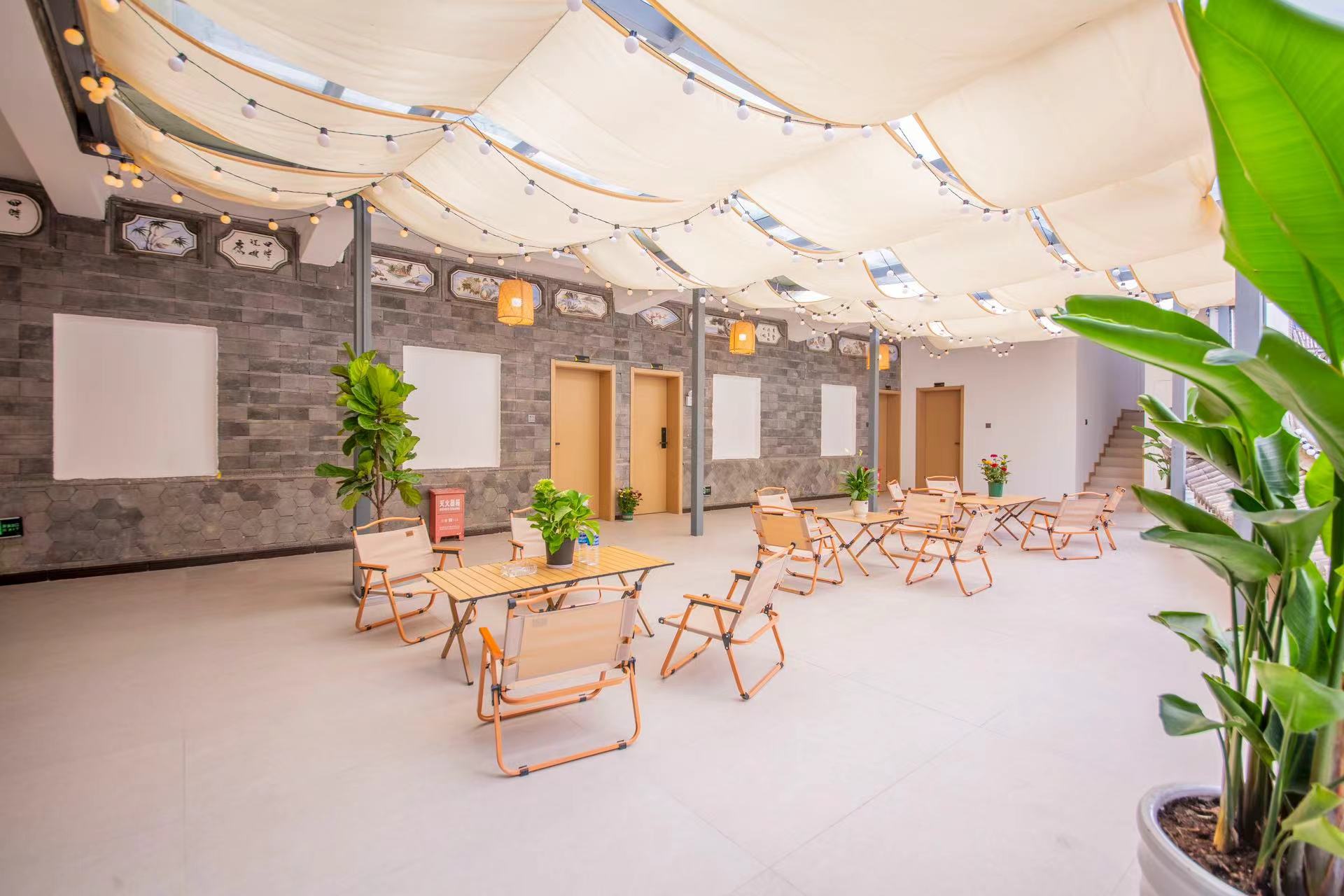
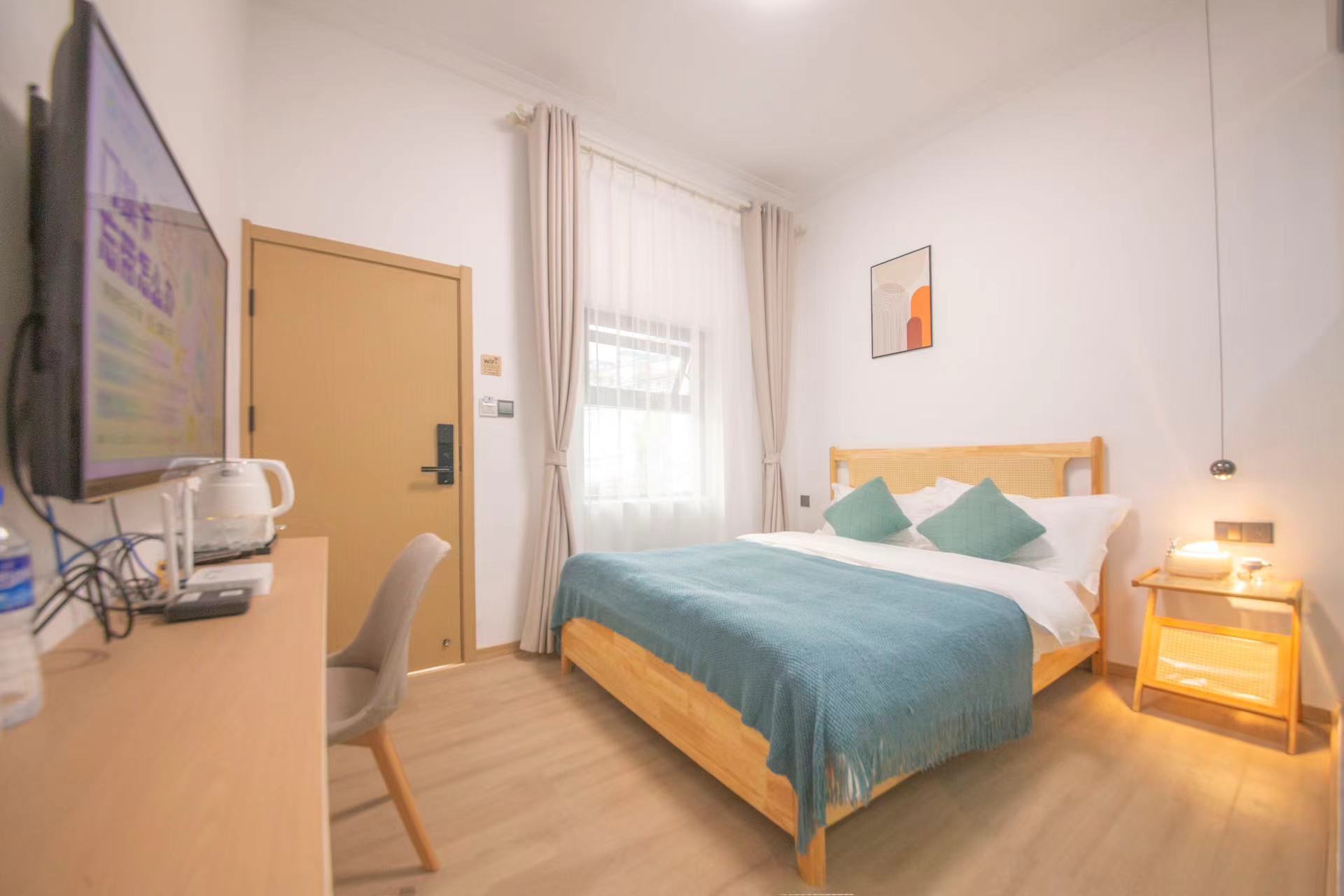

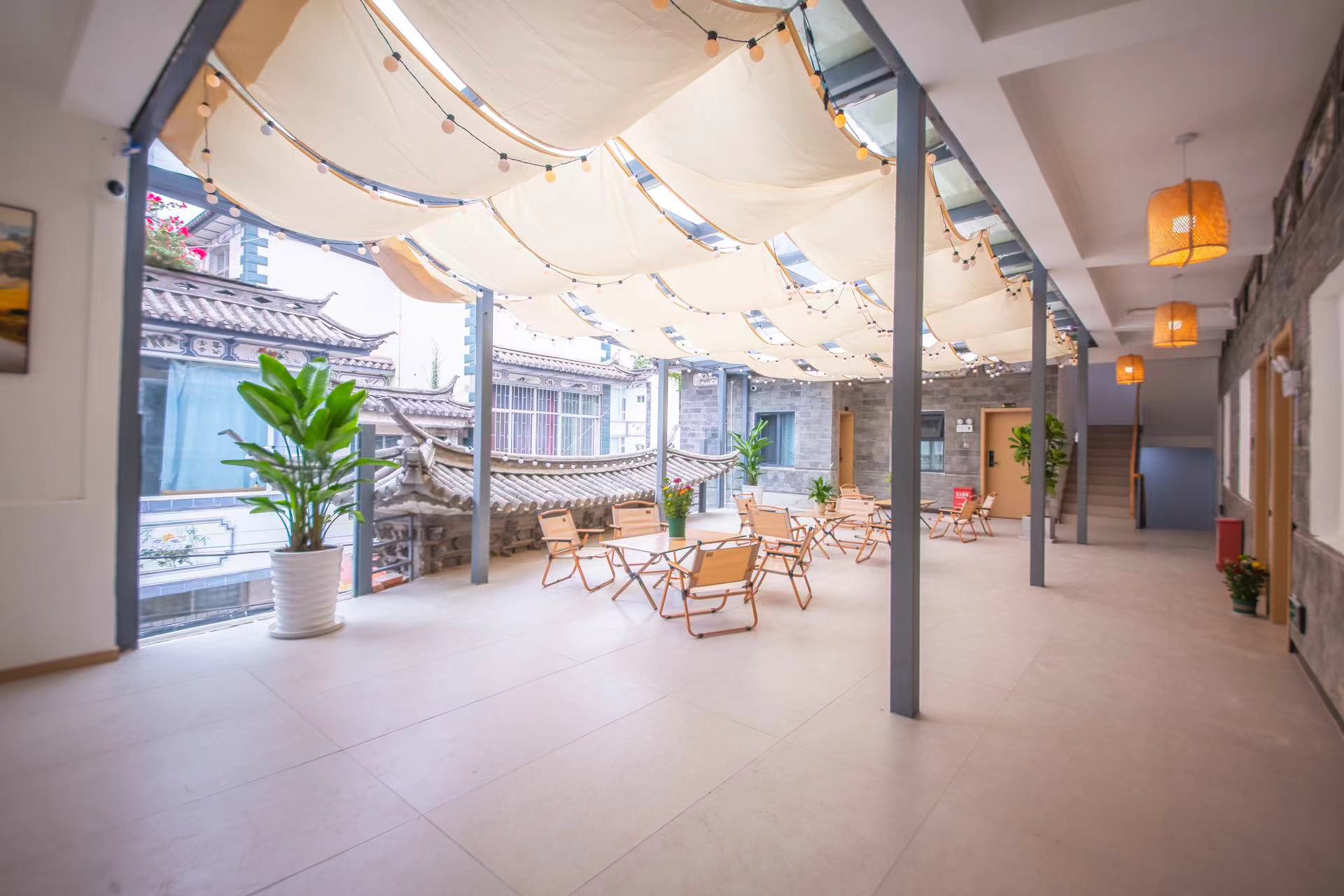


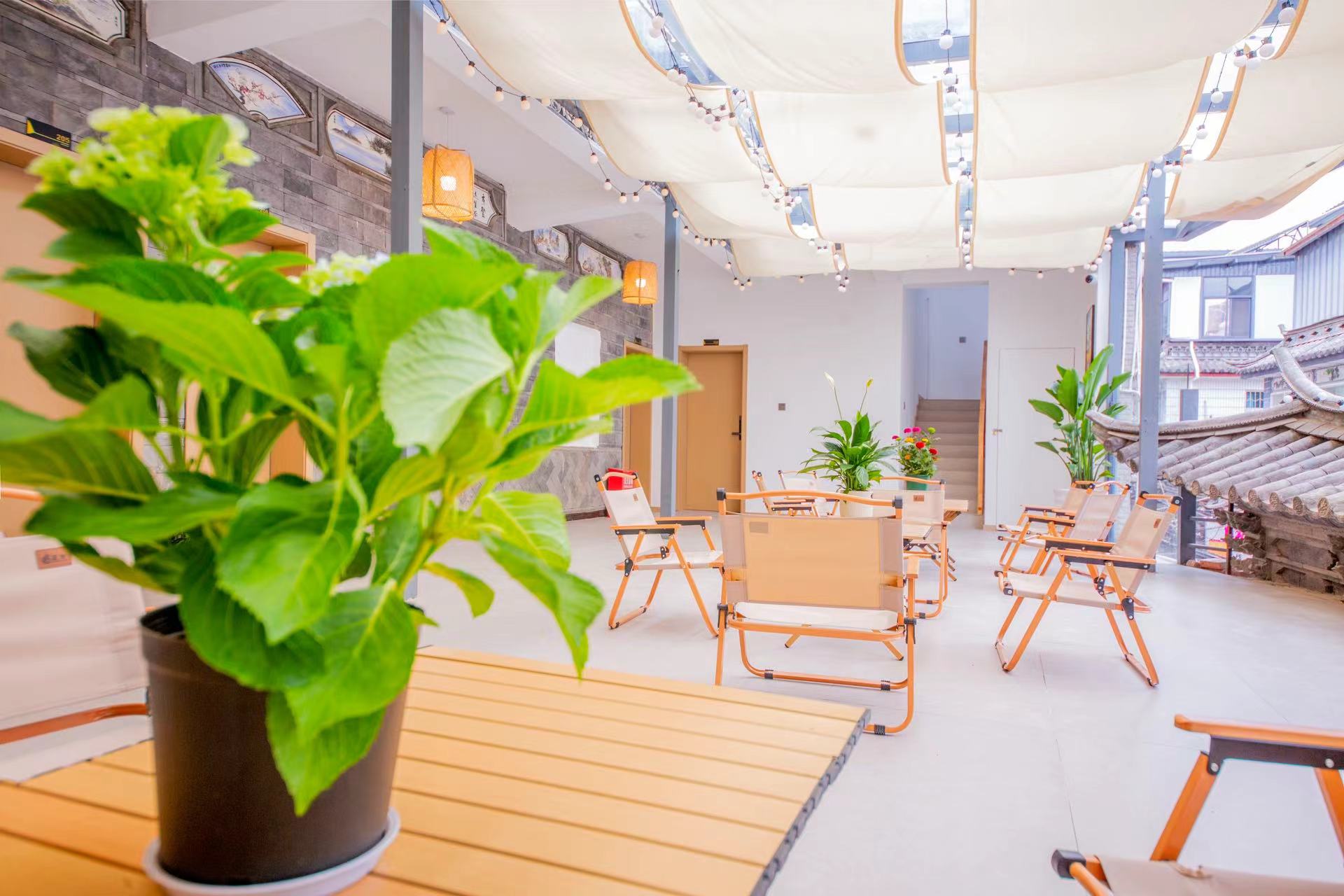
Why Learn Chinese in Dali?
Experience Dali, where nature’s grandeur meets ancient charm, for an unforgettable journey into the heart of beauty. By having an immersive Chinese class here, you can enjoy both studying and sightseeing simultaneously.
It is also one of the primary residences of the Bai Ethnic Group. Its history stretches back to the kingdom of Nanzhao (8th century).
The old walled city from the Ming dynasty contains traditional homes and towers from the Bai ethnic minority.
Dali is a great place to explore traditional Chinese culture and minority culture while learning Chinese in China.
Full Immersion in Chinese
- If you prefer to have an all-Chinese learning environment and not speak any English, Dali is for you. Please don’t be surprised if you are the only student in Dali or if you barely see any international visitors.
- The best thing about studying in Dali is that your teacher will accompany you to do sightseeing every day after class, to create a pure Chinese language environment for you. Studying Chinese in Dali not only focuses on the Chinese language but also offers a chance to explore the local culture with your teacher.
- If you prefer a big and vivid international student community or expect a school community experience, please choose to learn Chinese in Kunming at the Kunming campus.
Beautiful Scenery in Dali
Dali, a symphony of serene lake waters and majestic mountains, is a timeless masterpiece of nature's artistry.
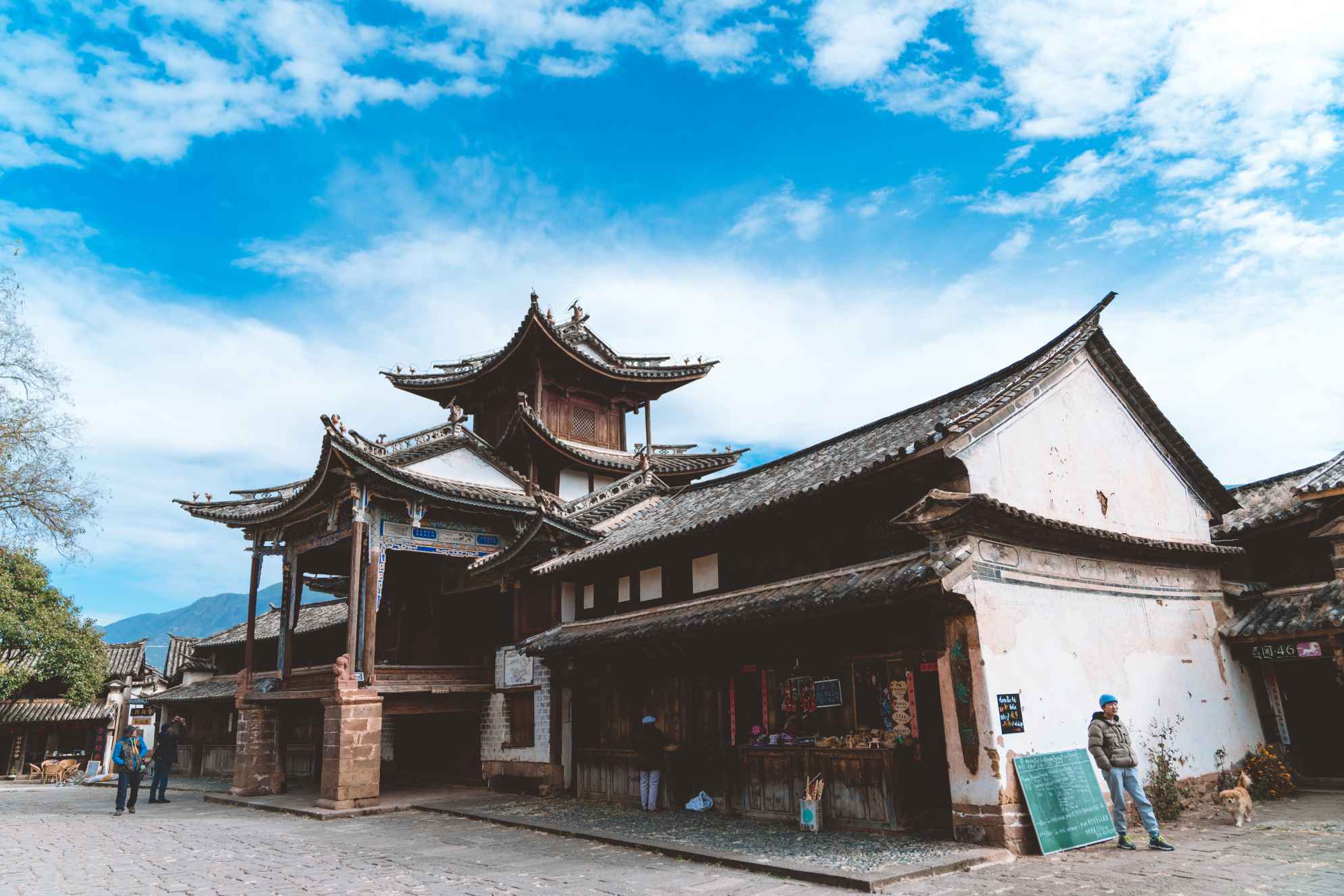
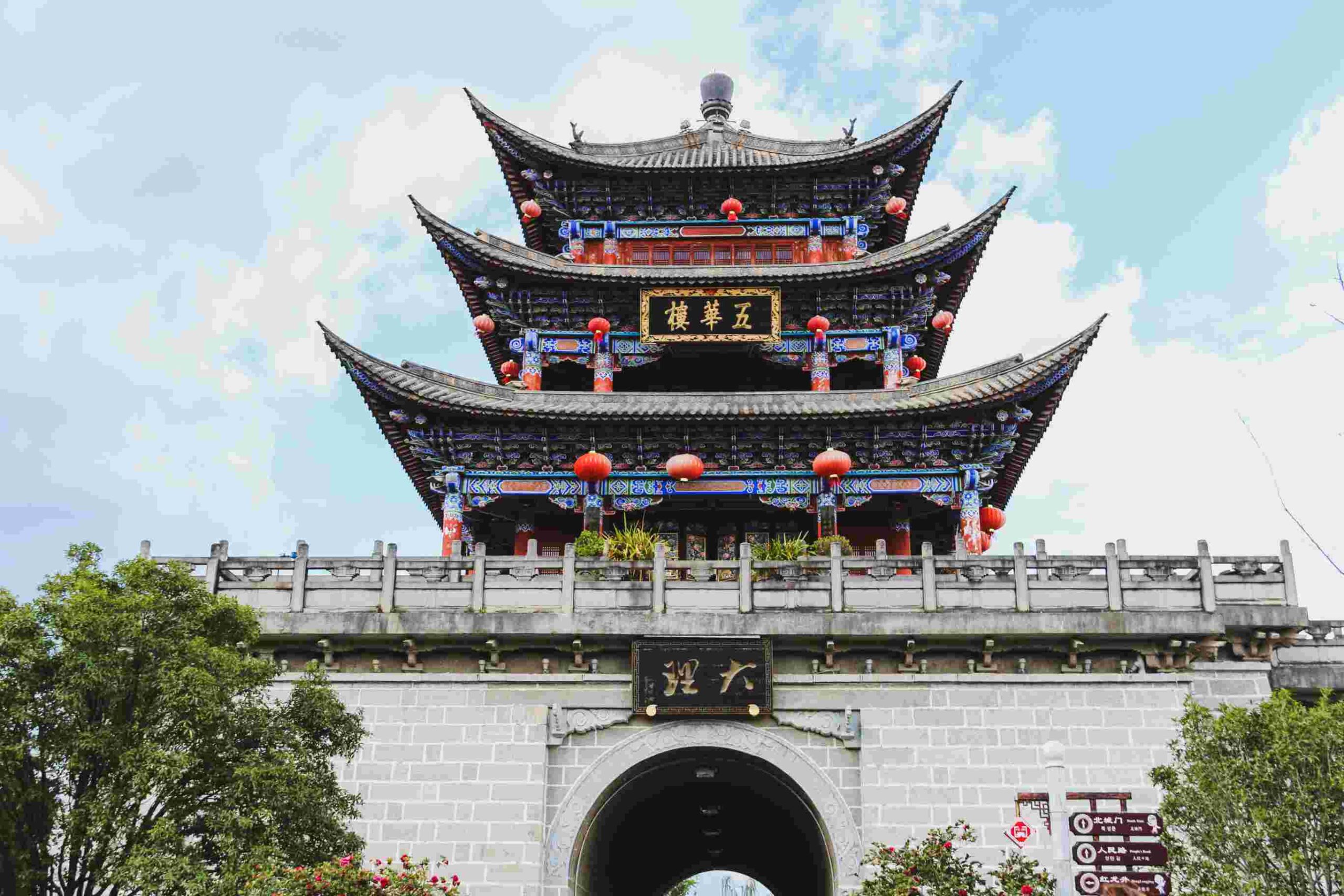

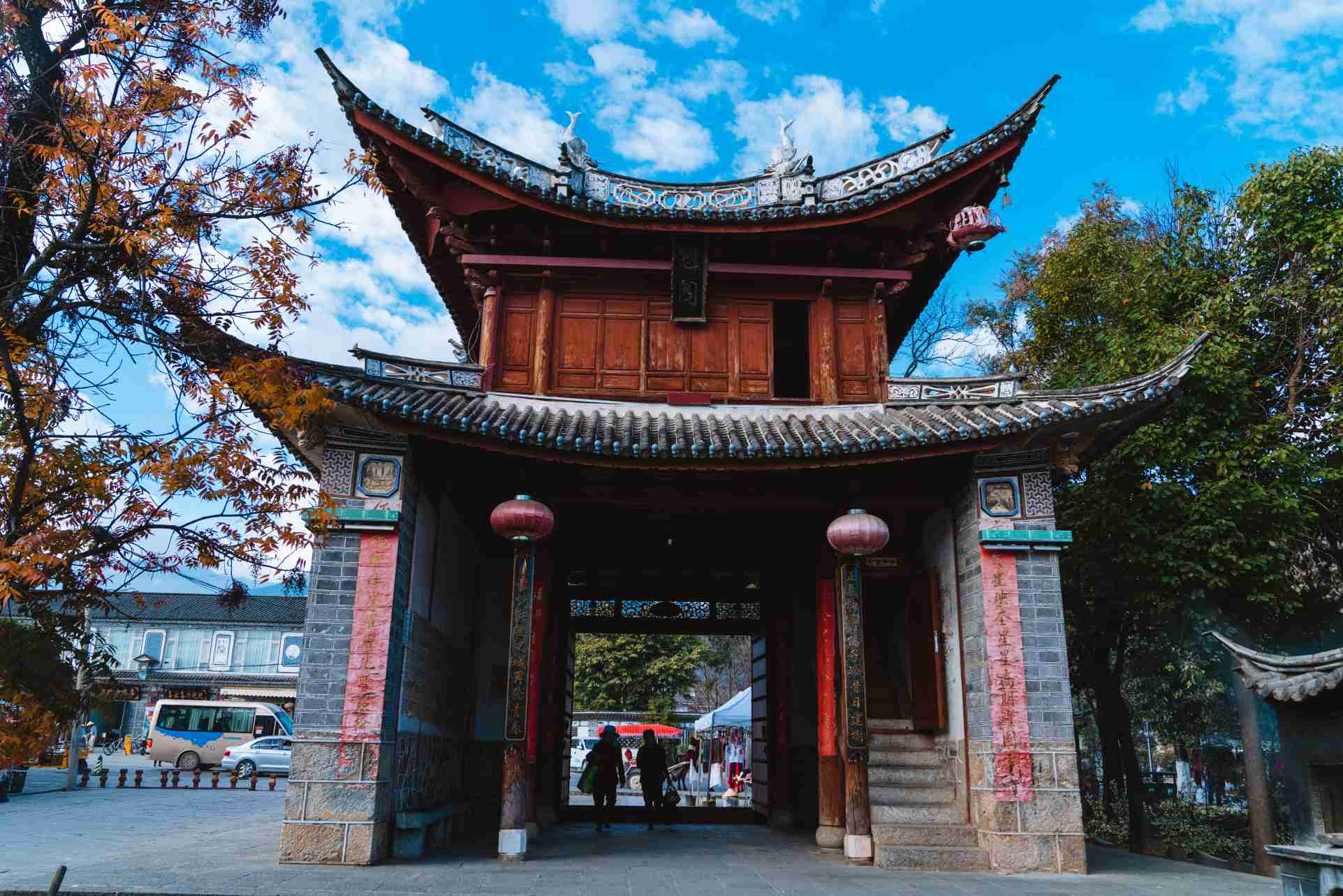
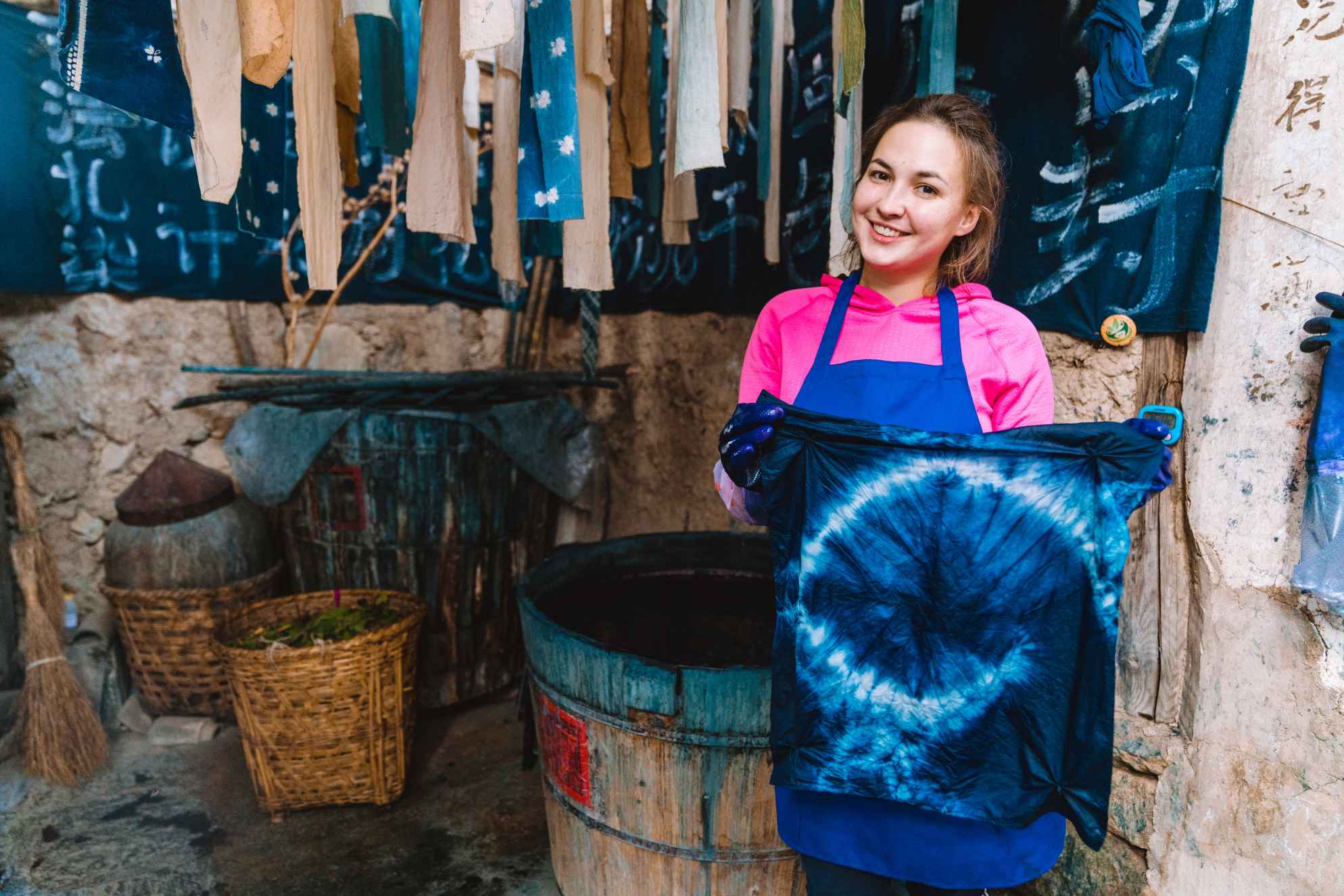
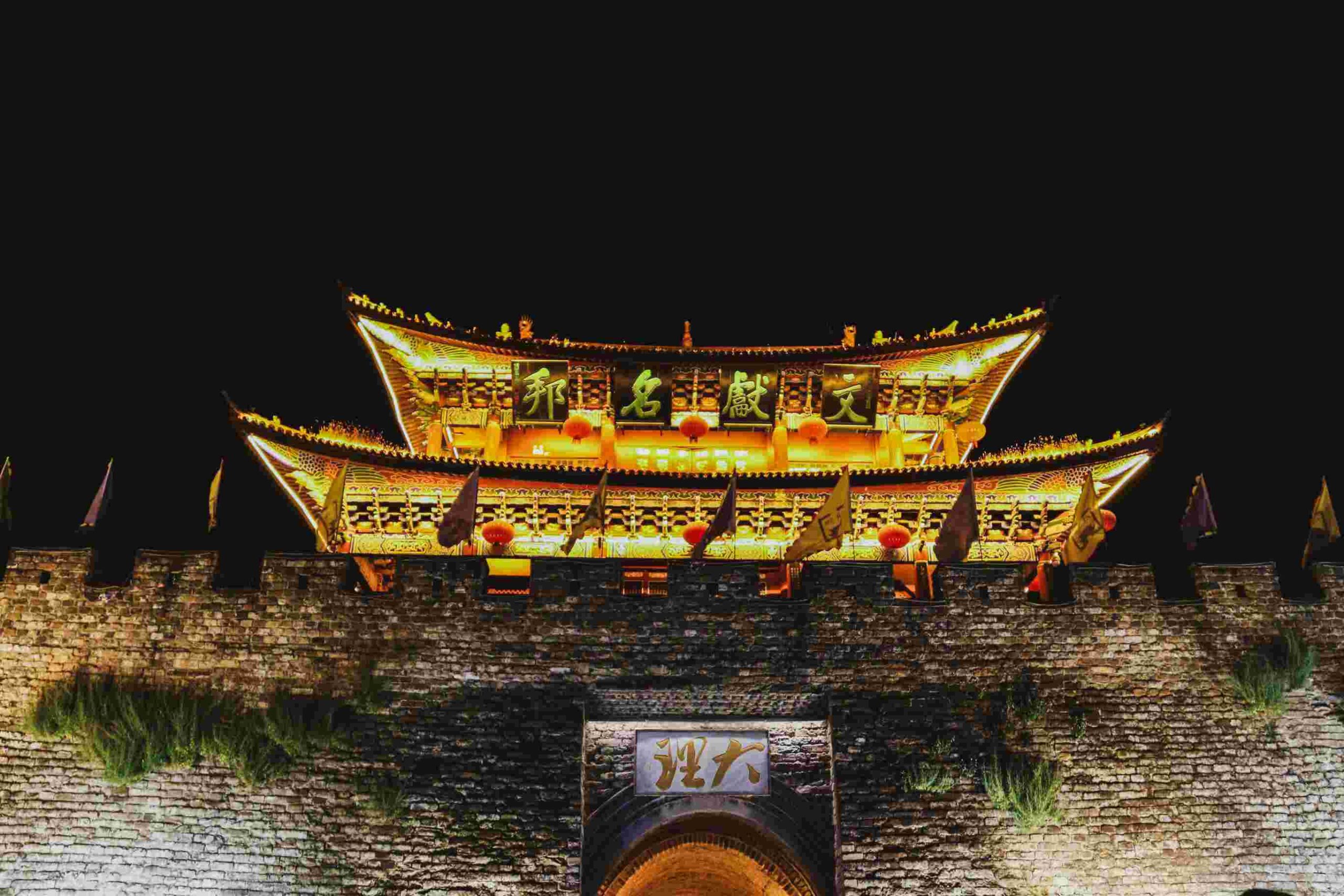
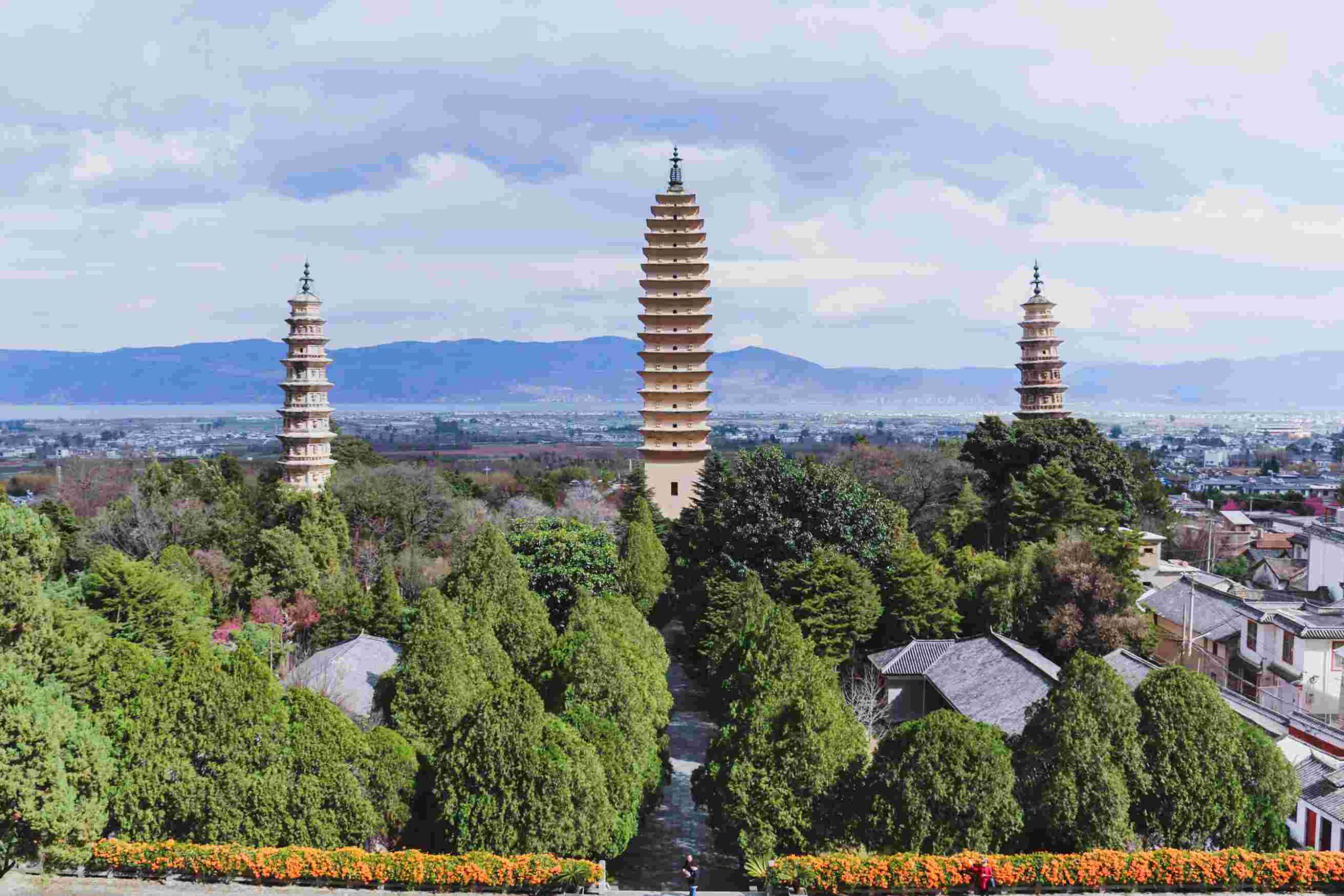
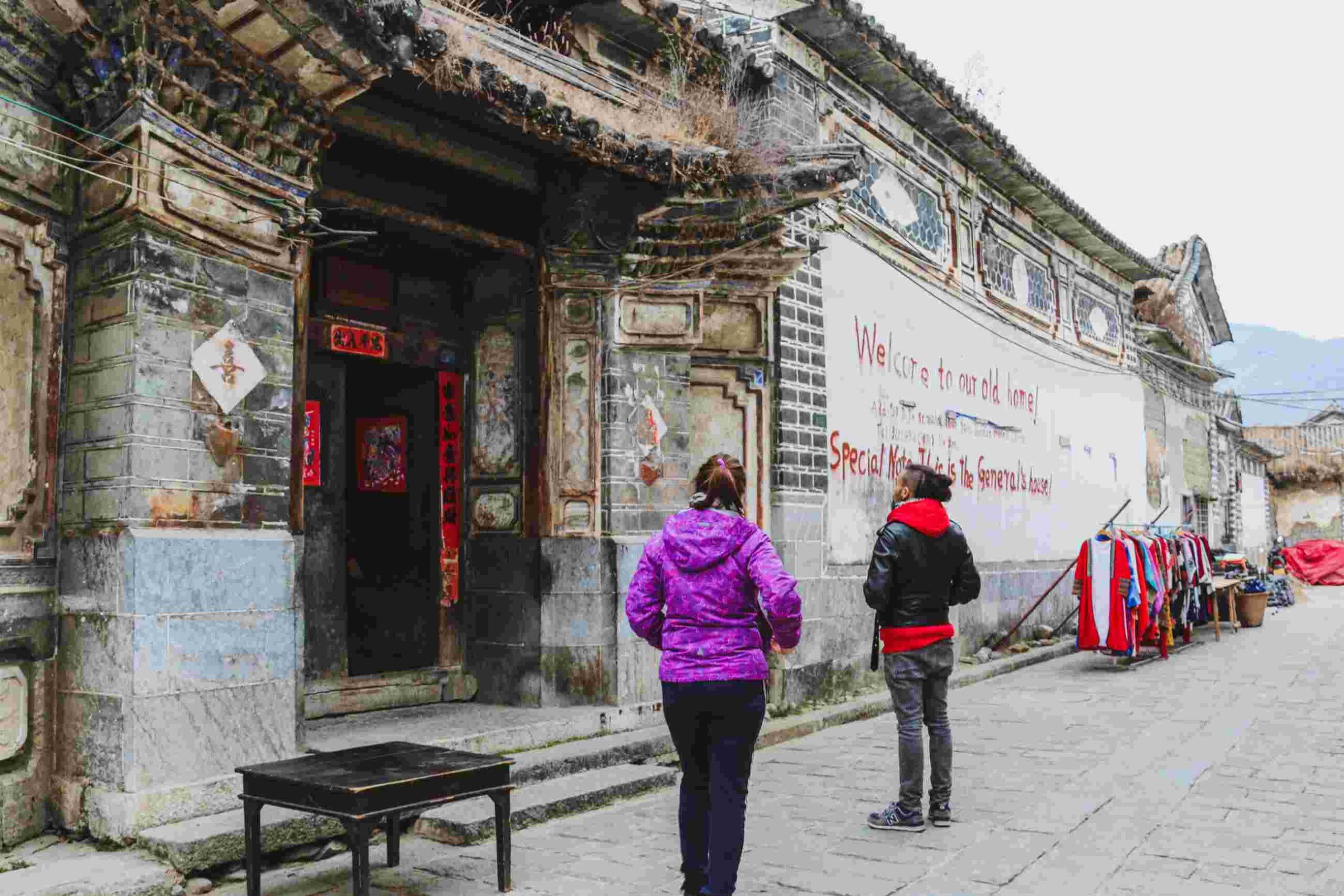
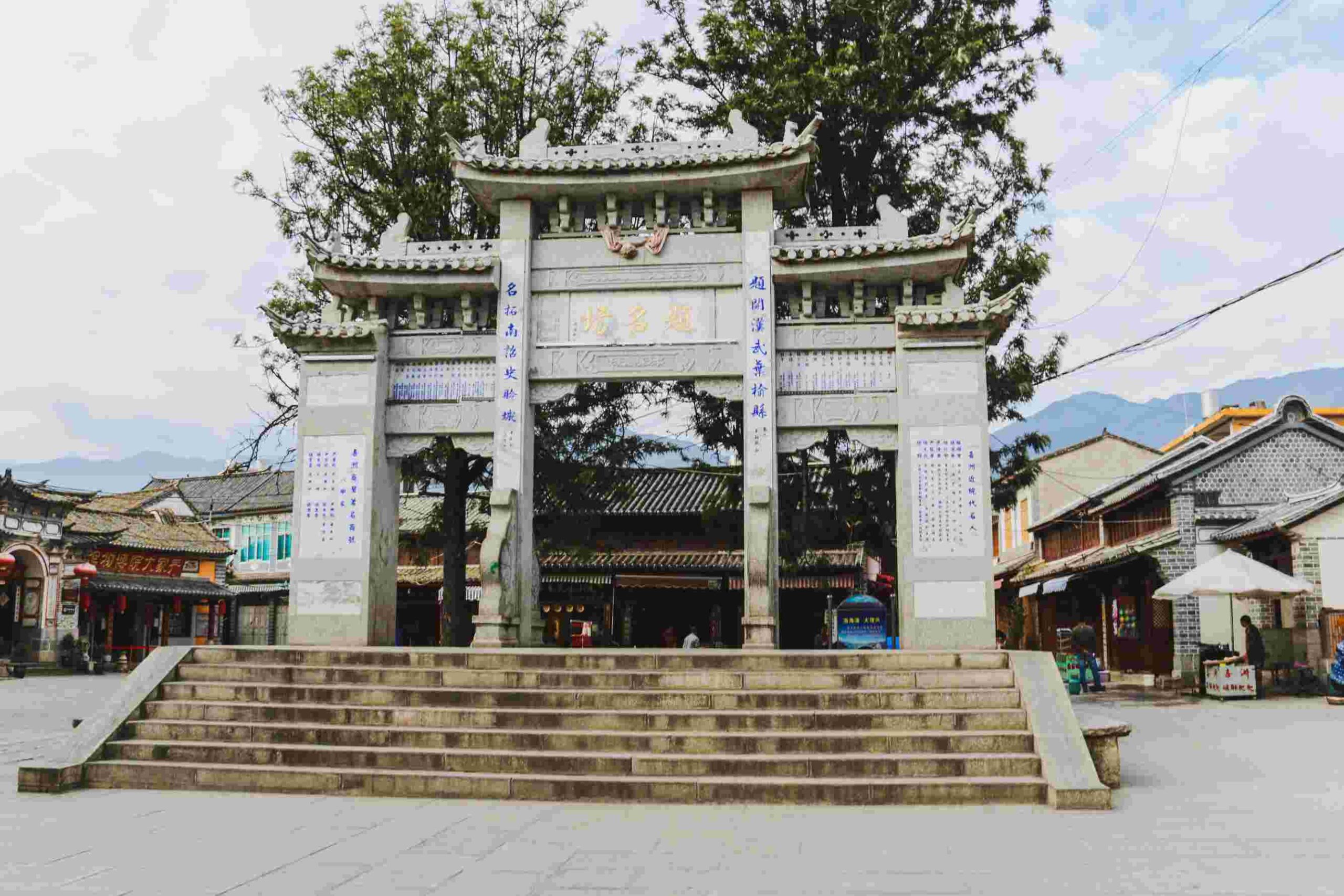
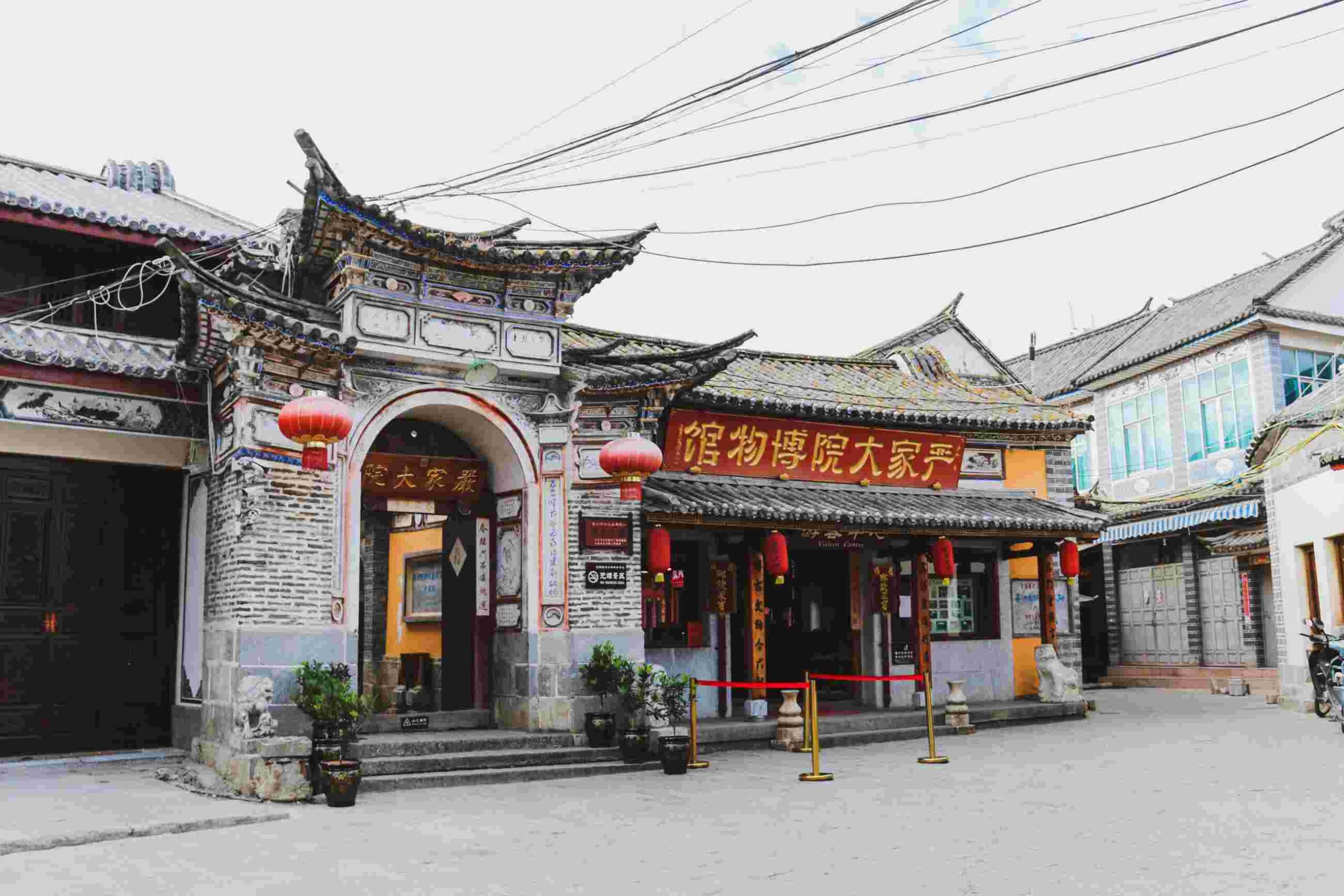
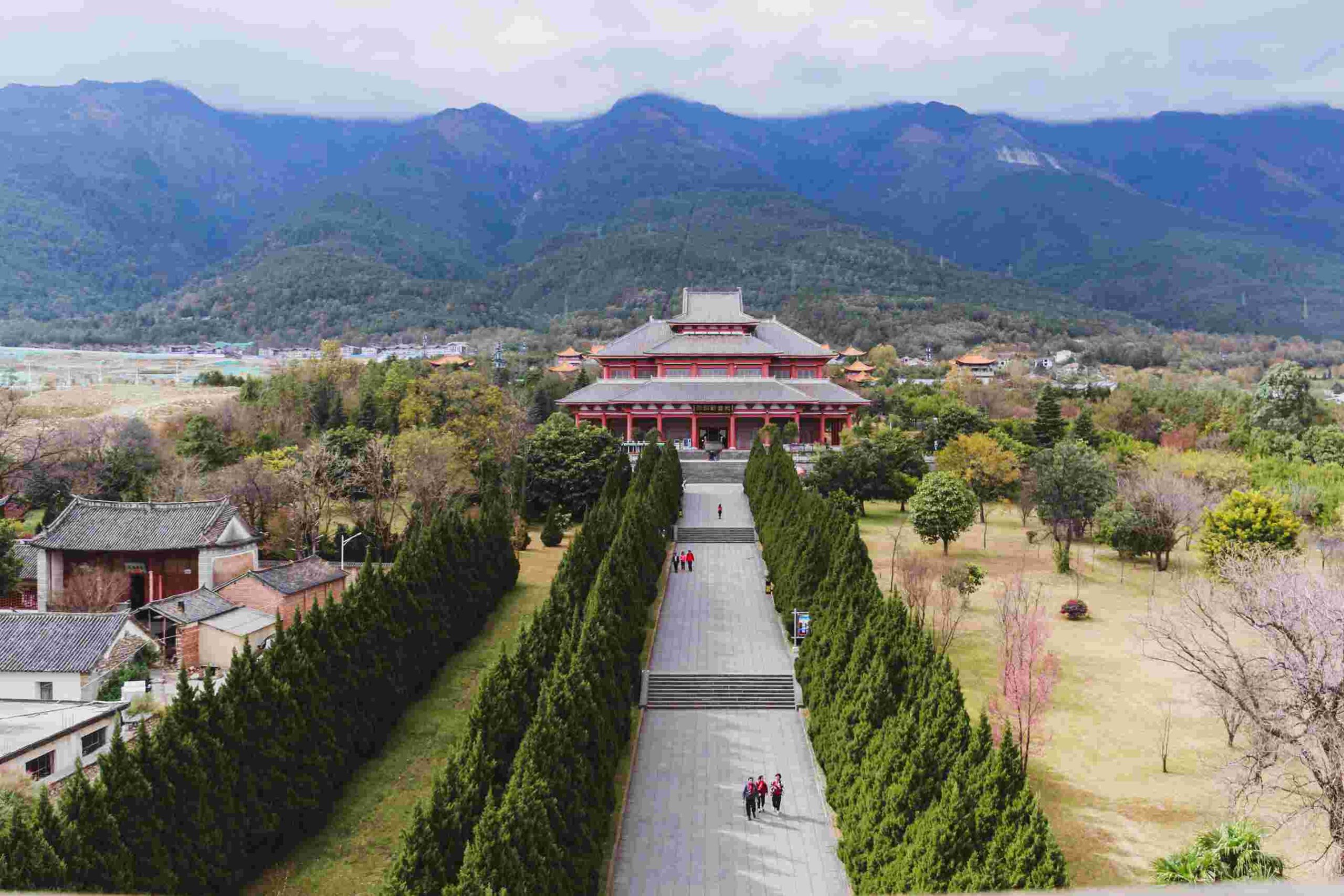
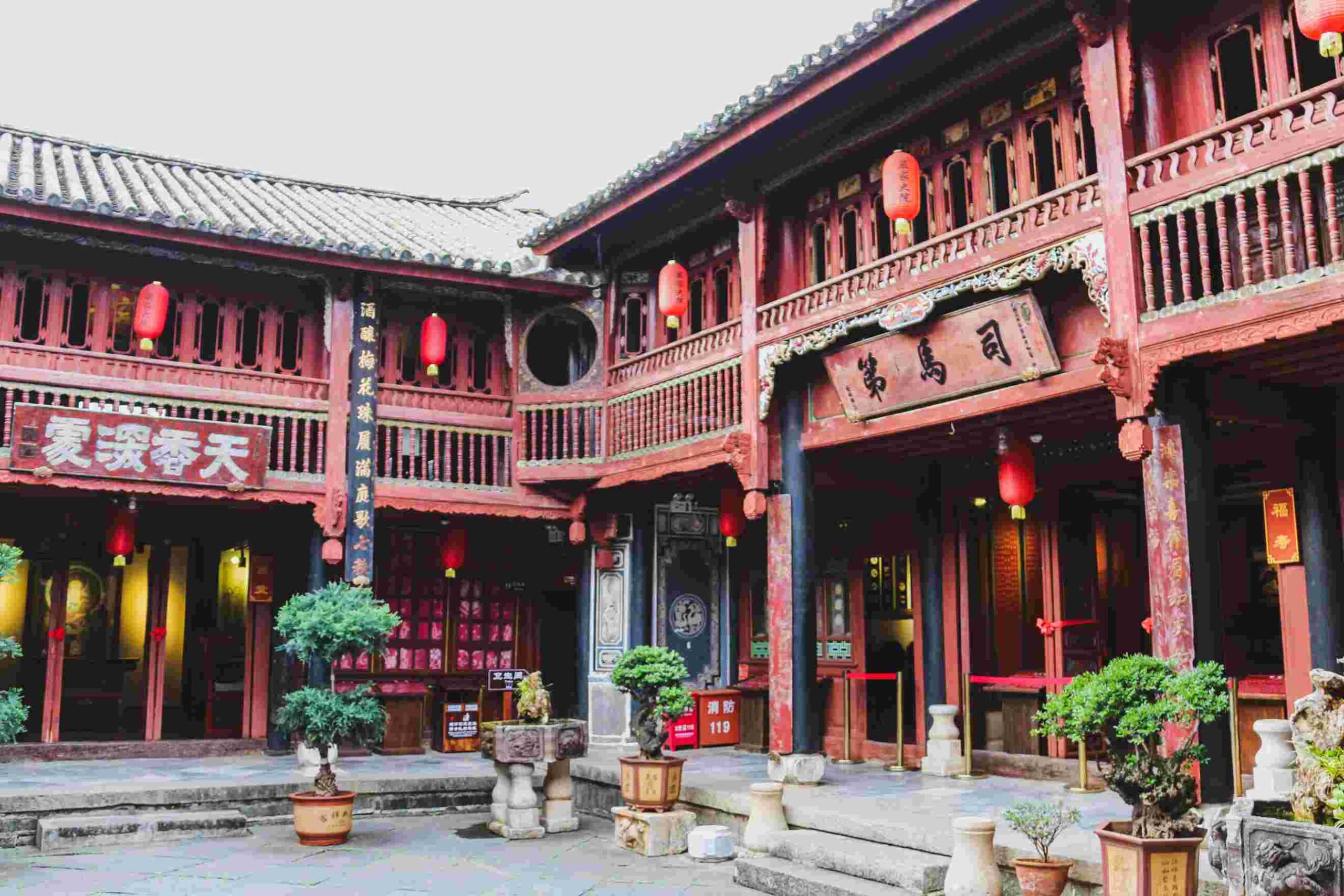
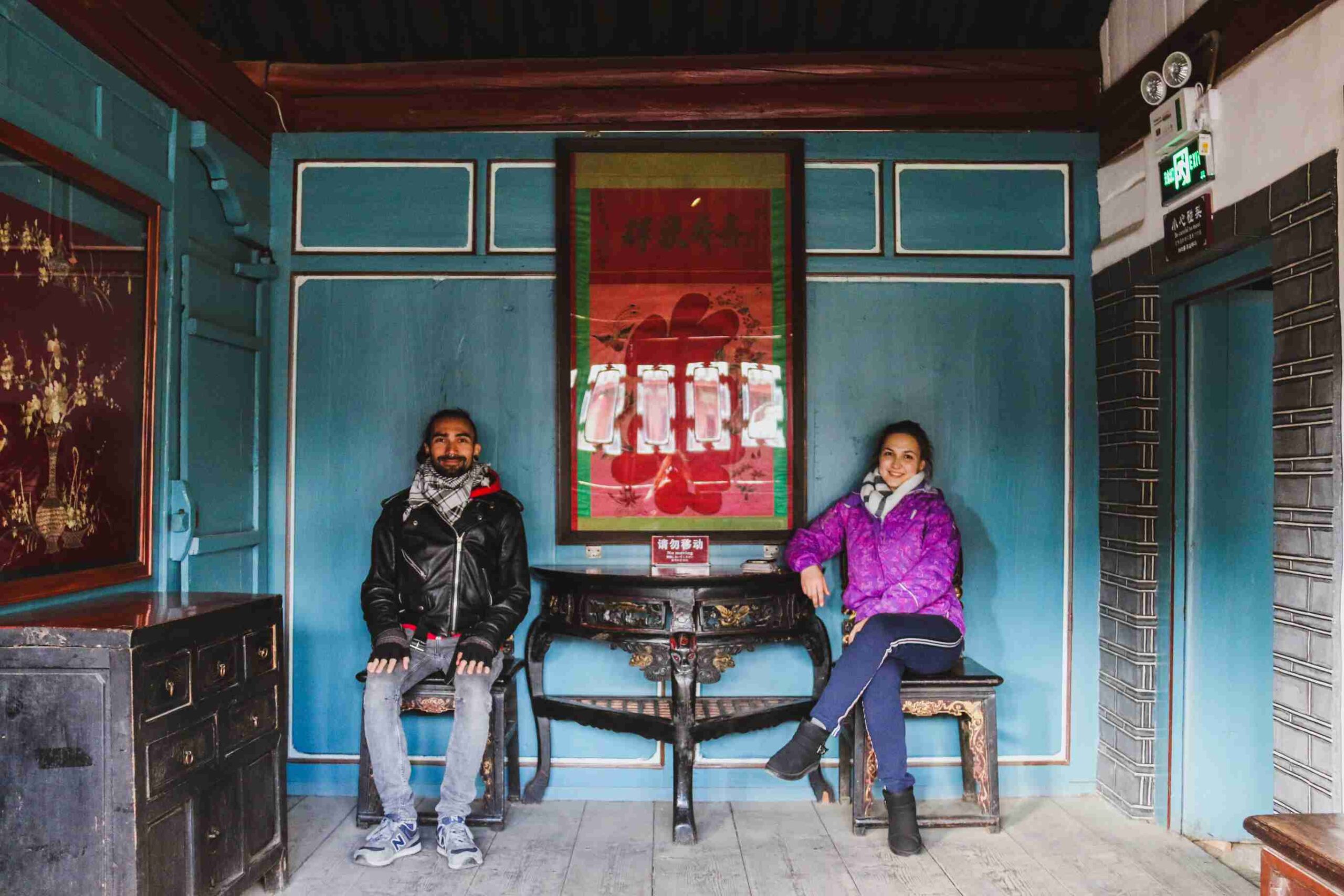
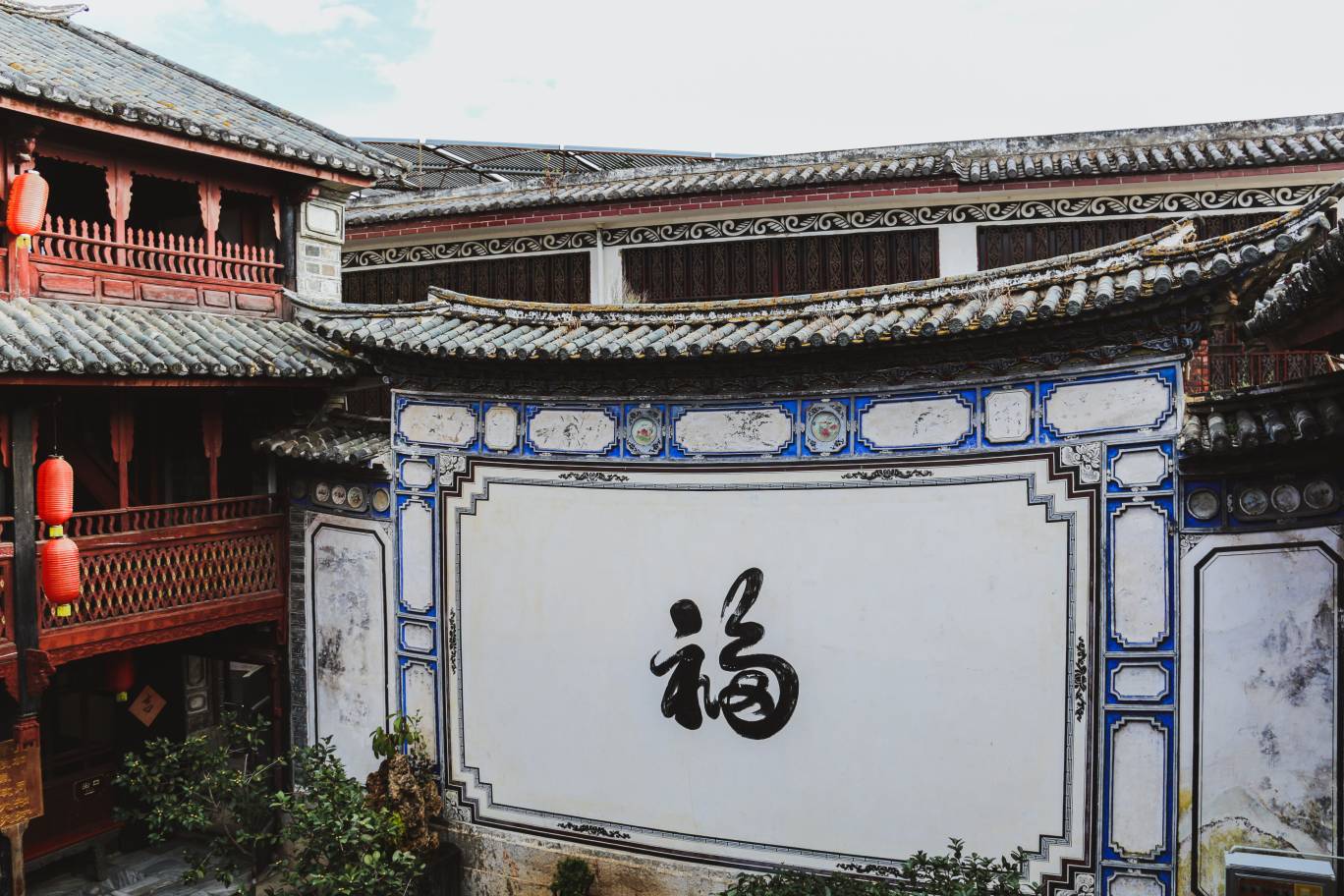
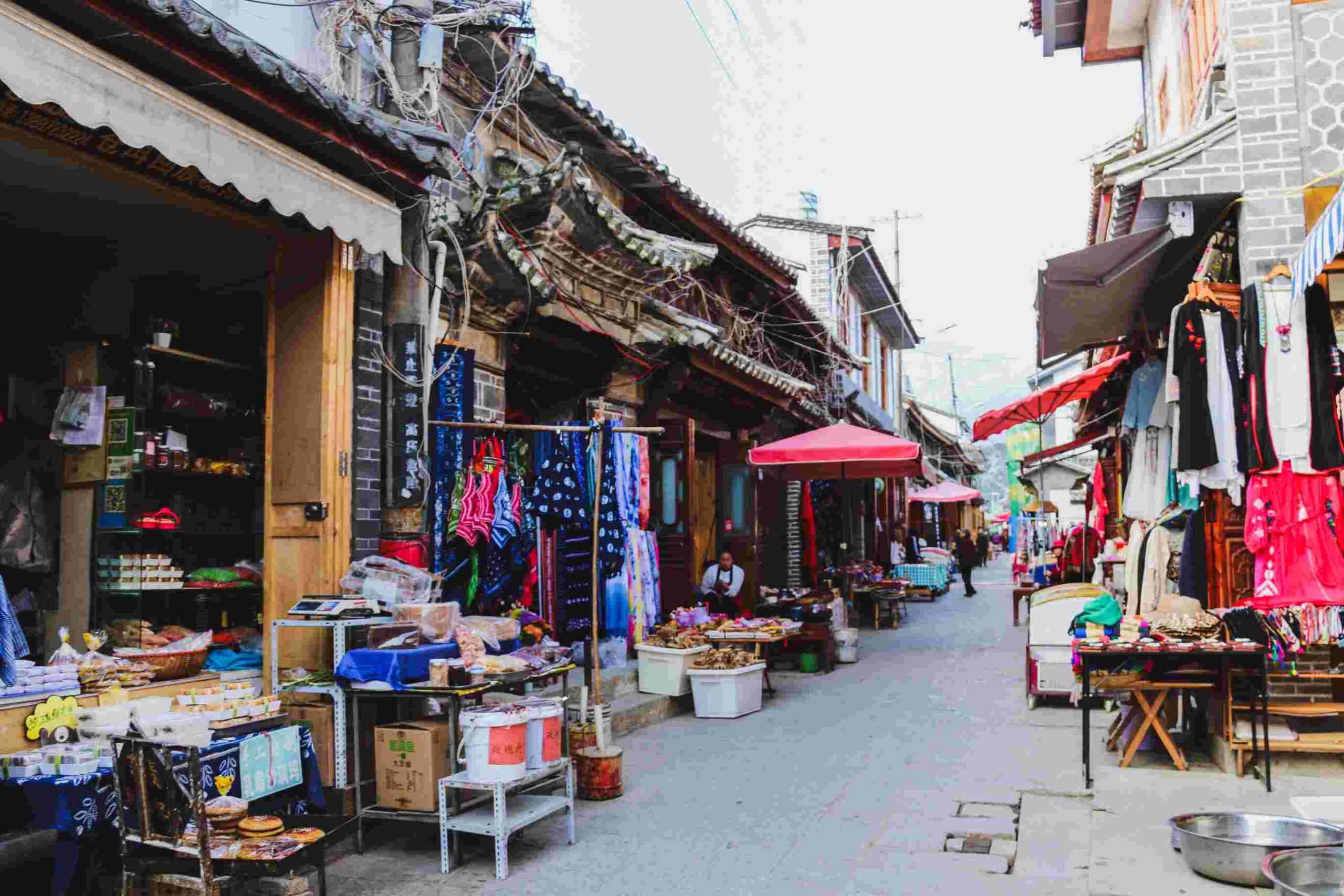
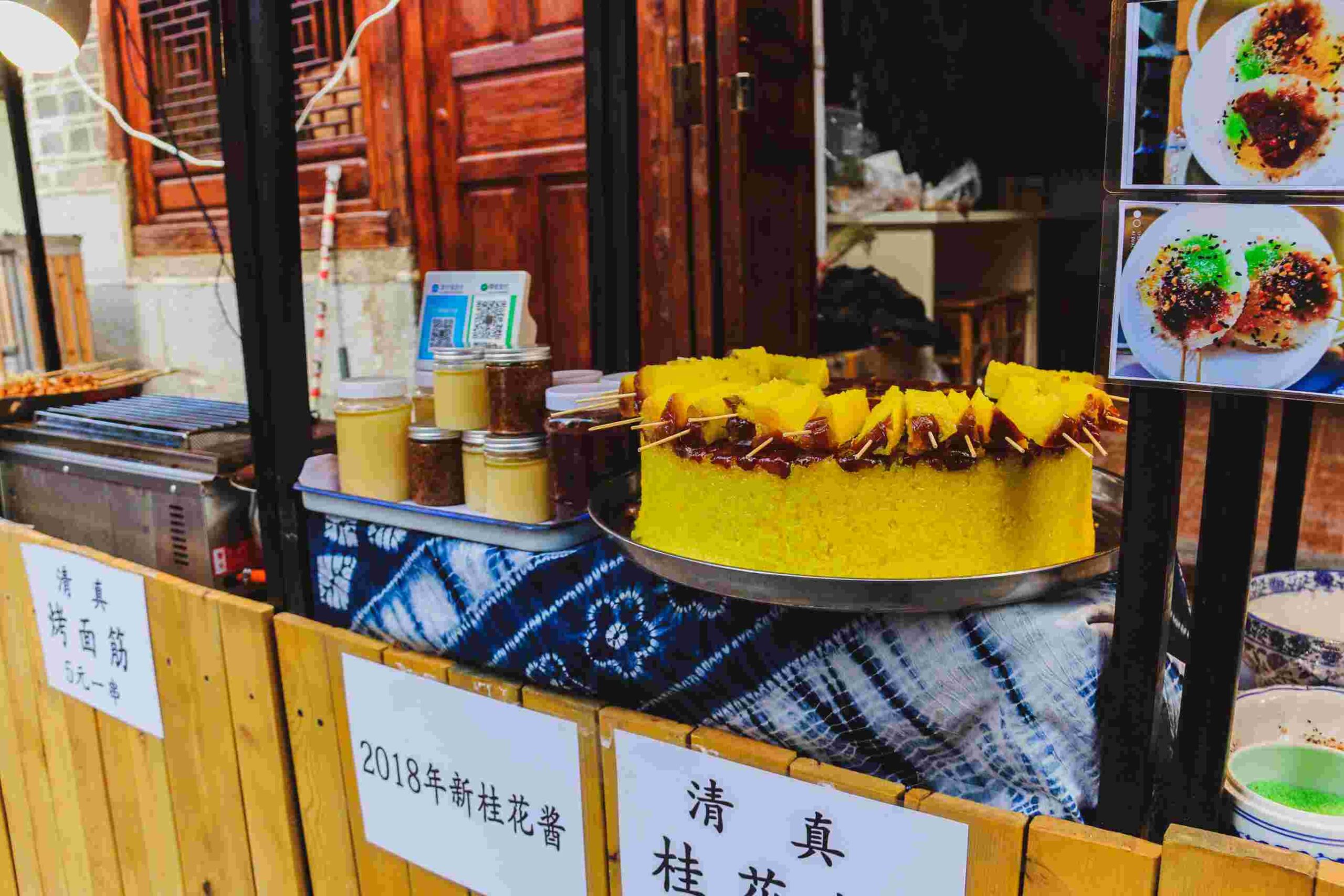


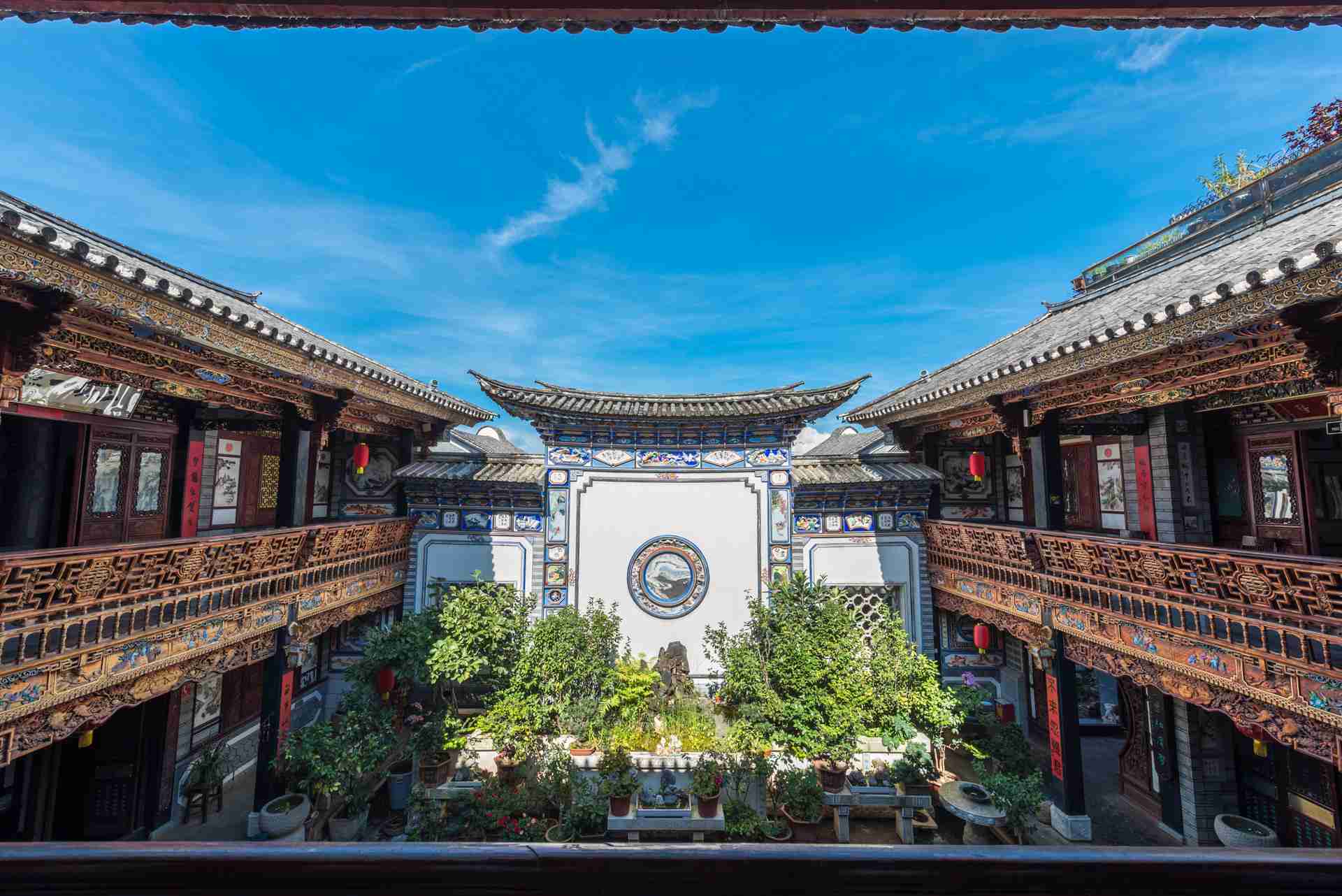
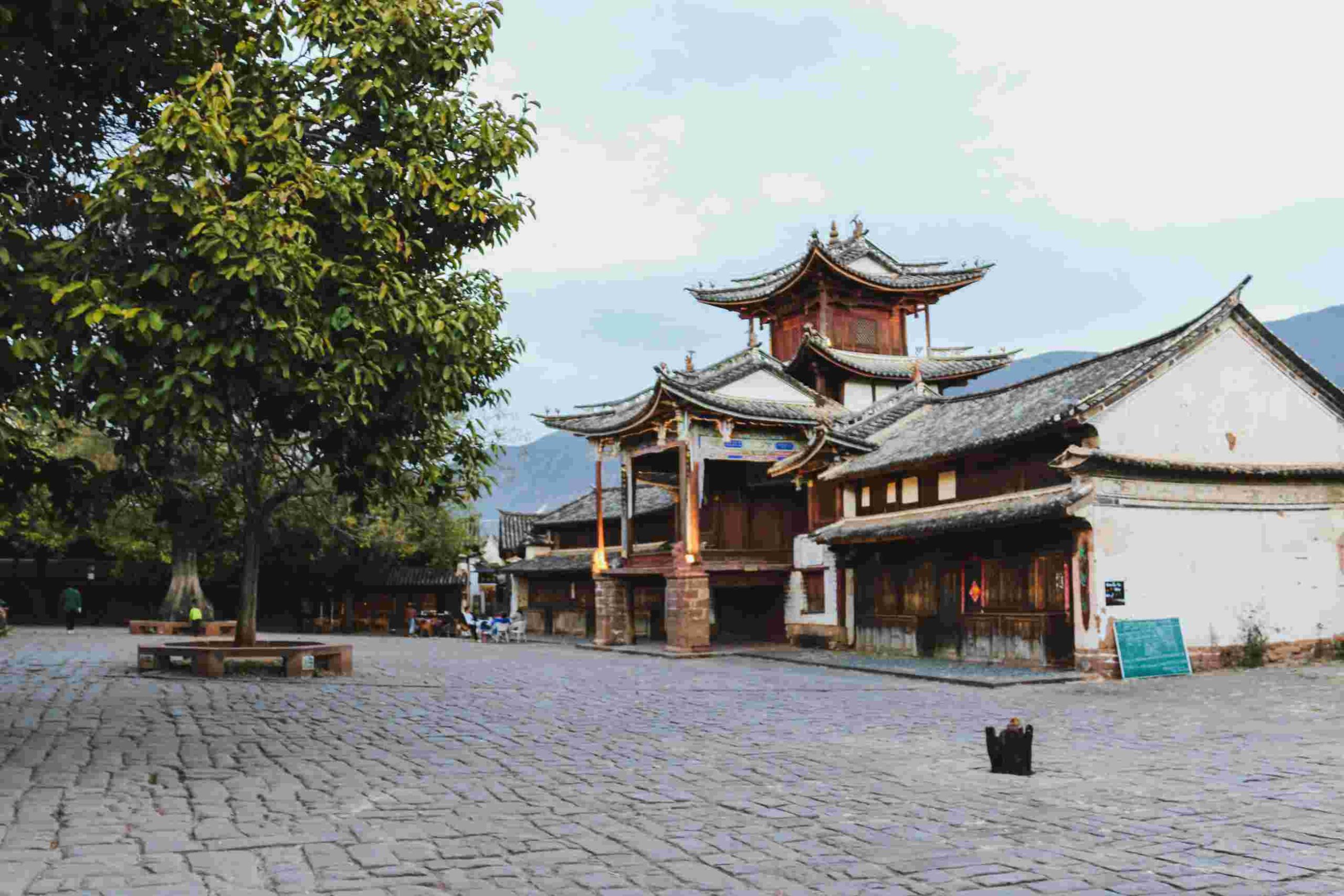
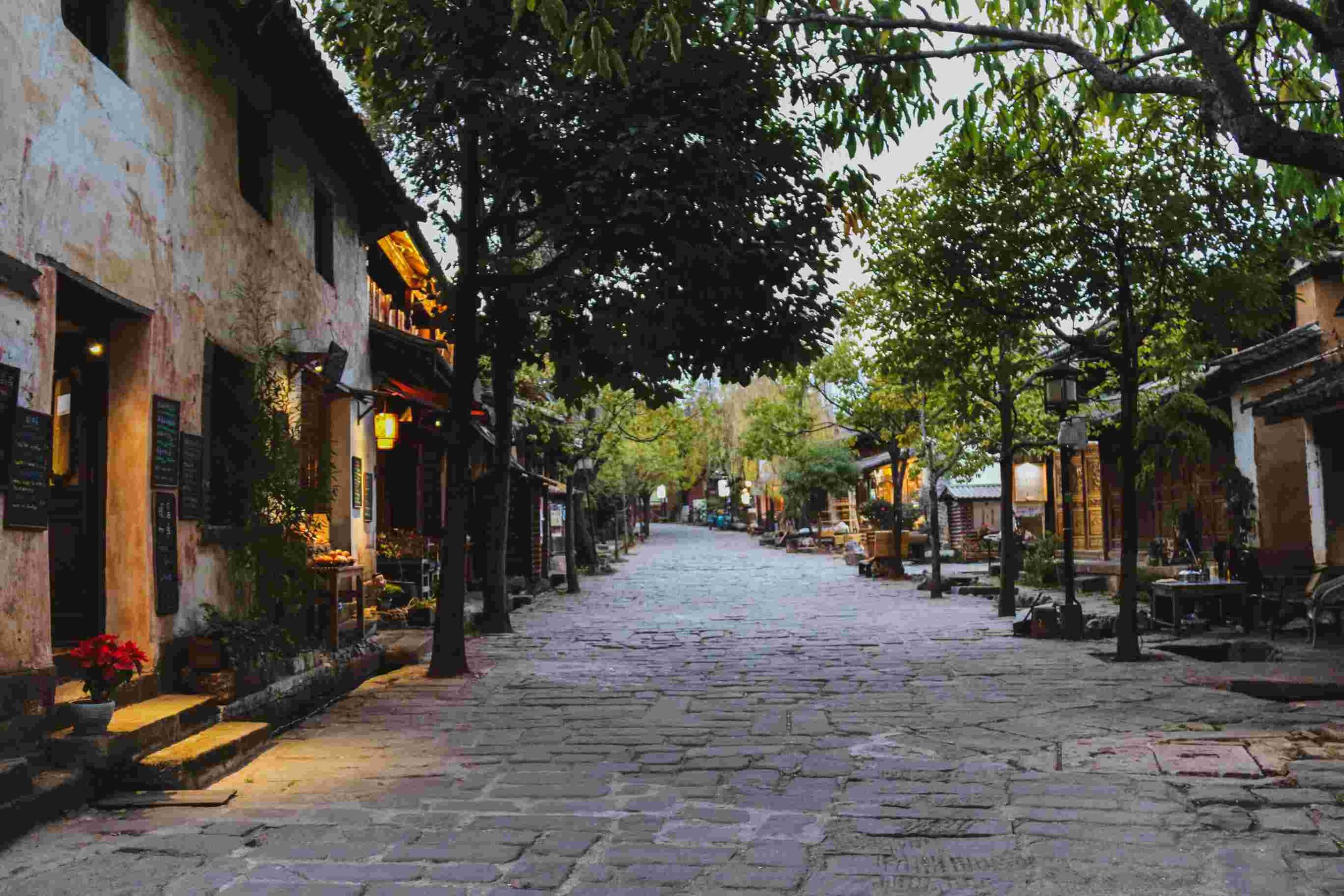
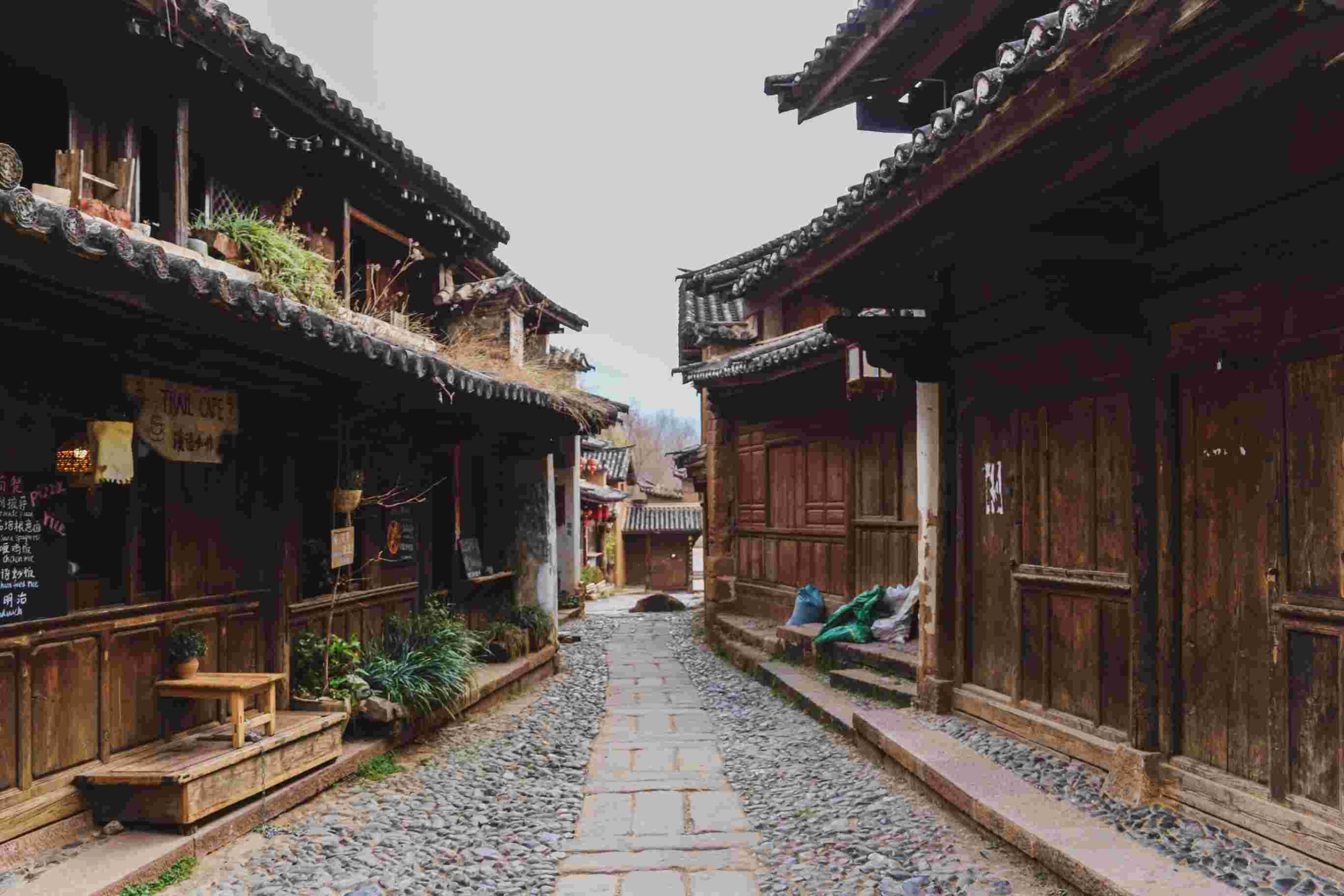
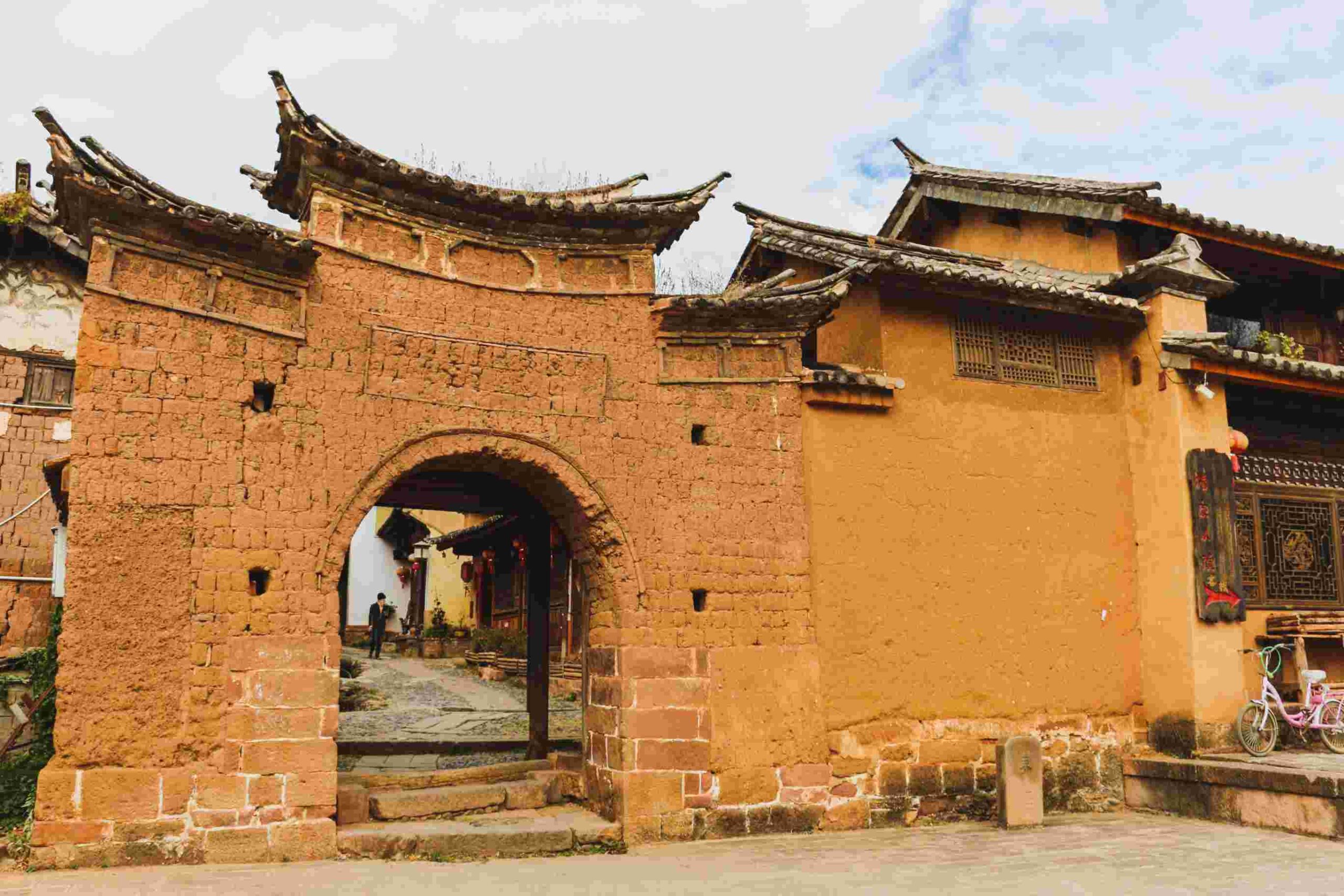





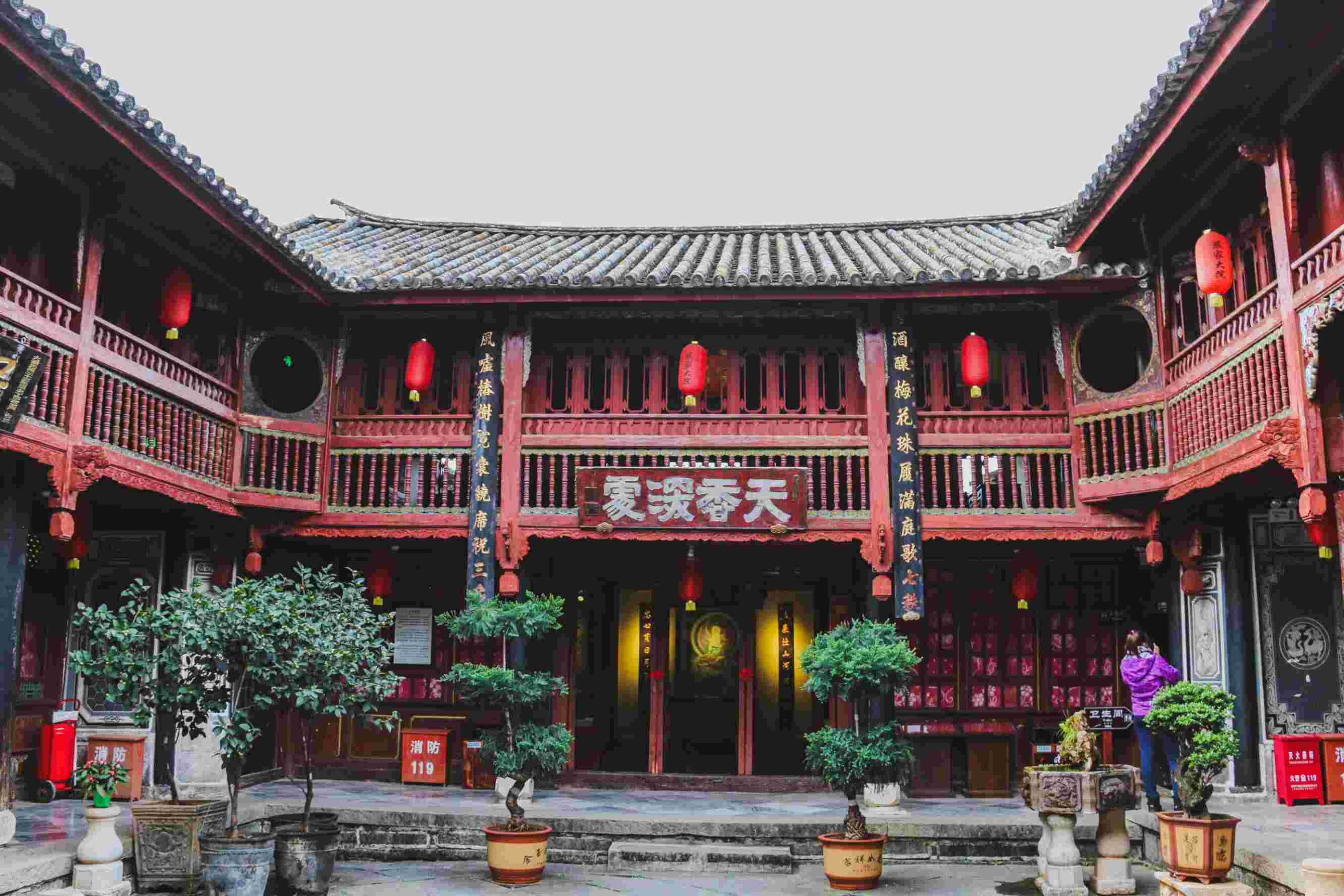







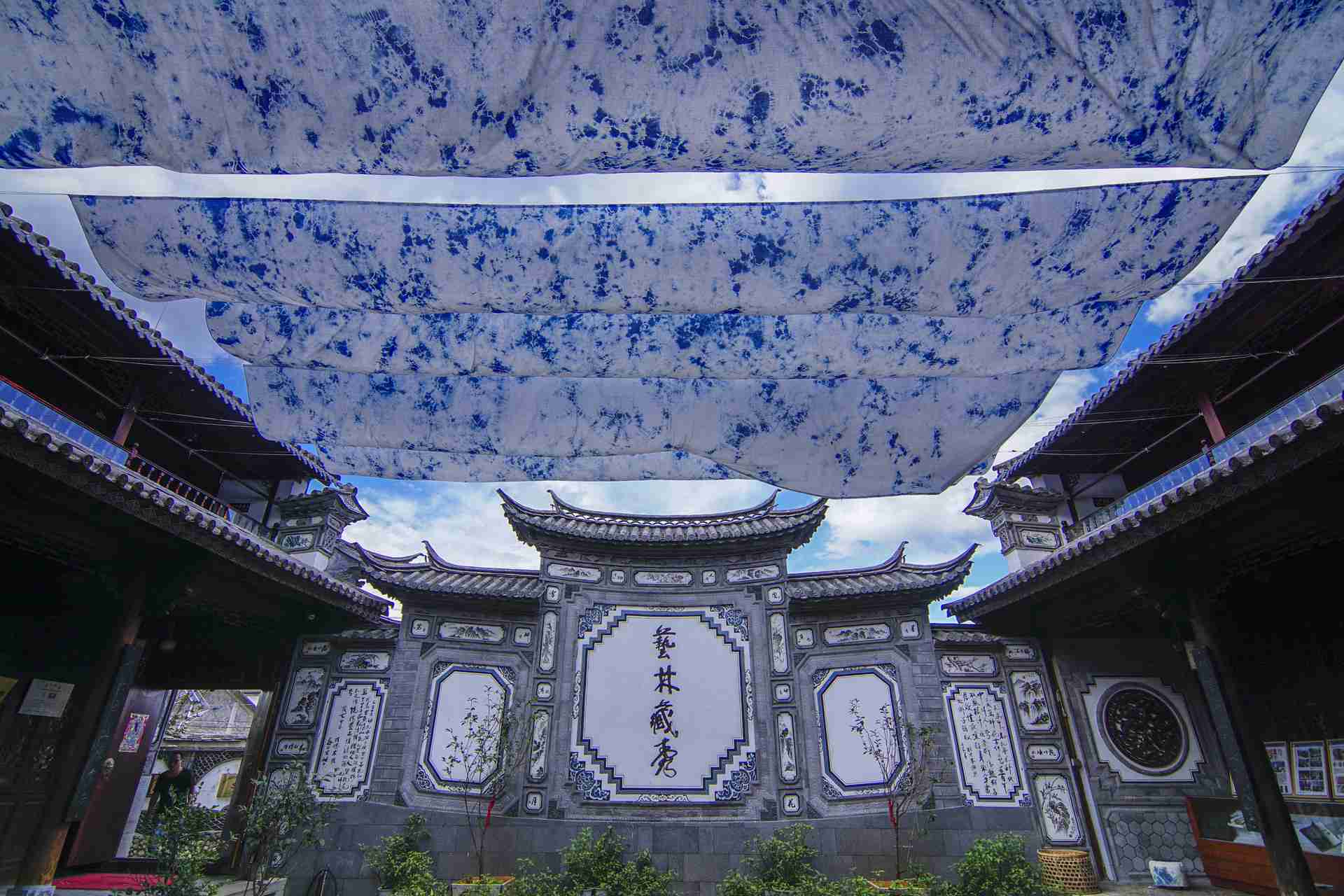








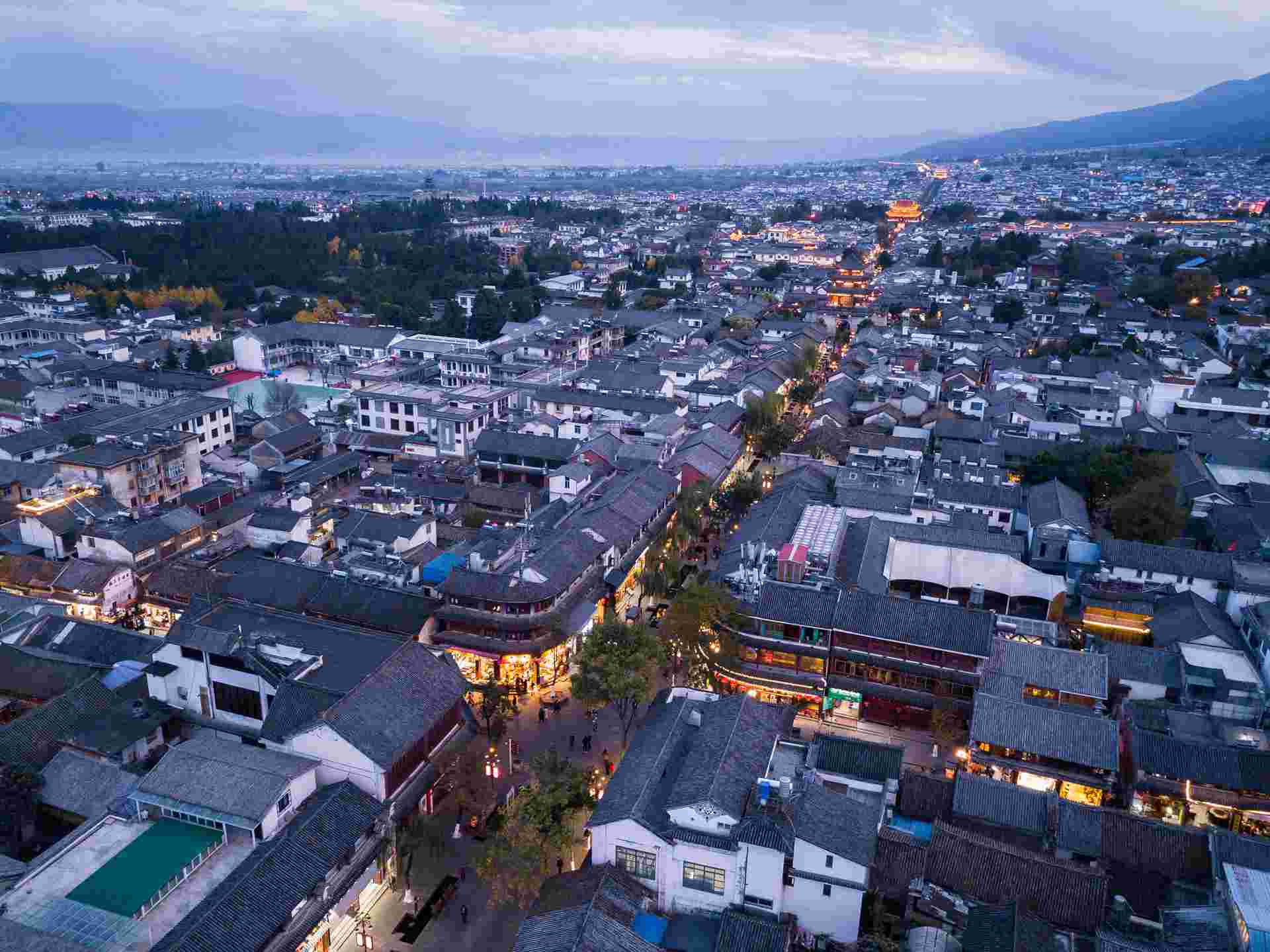
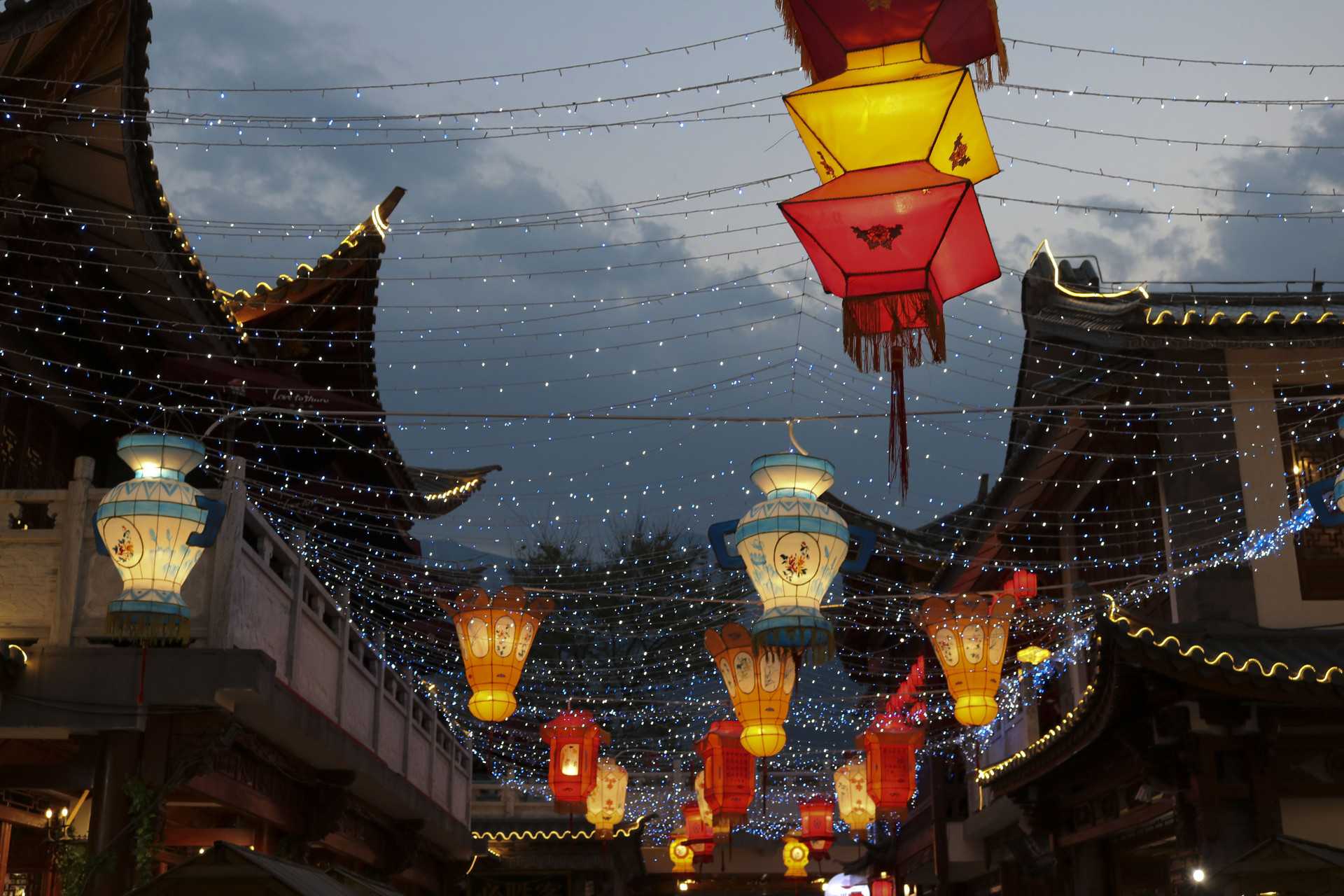
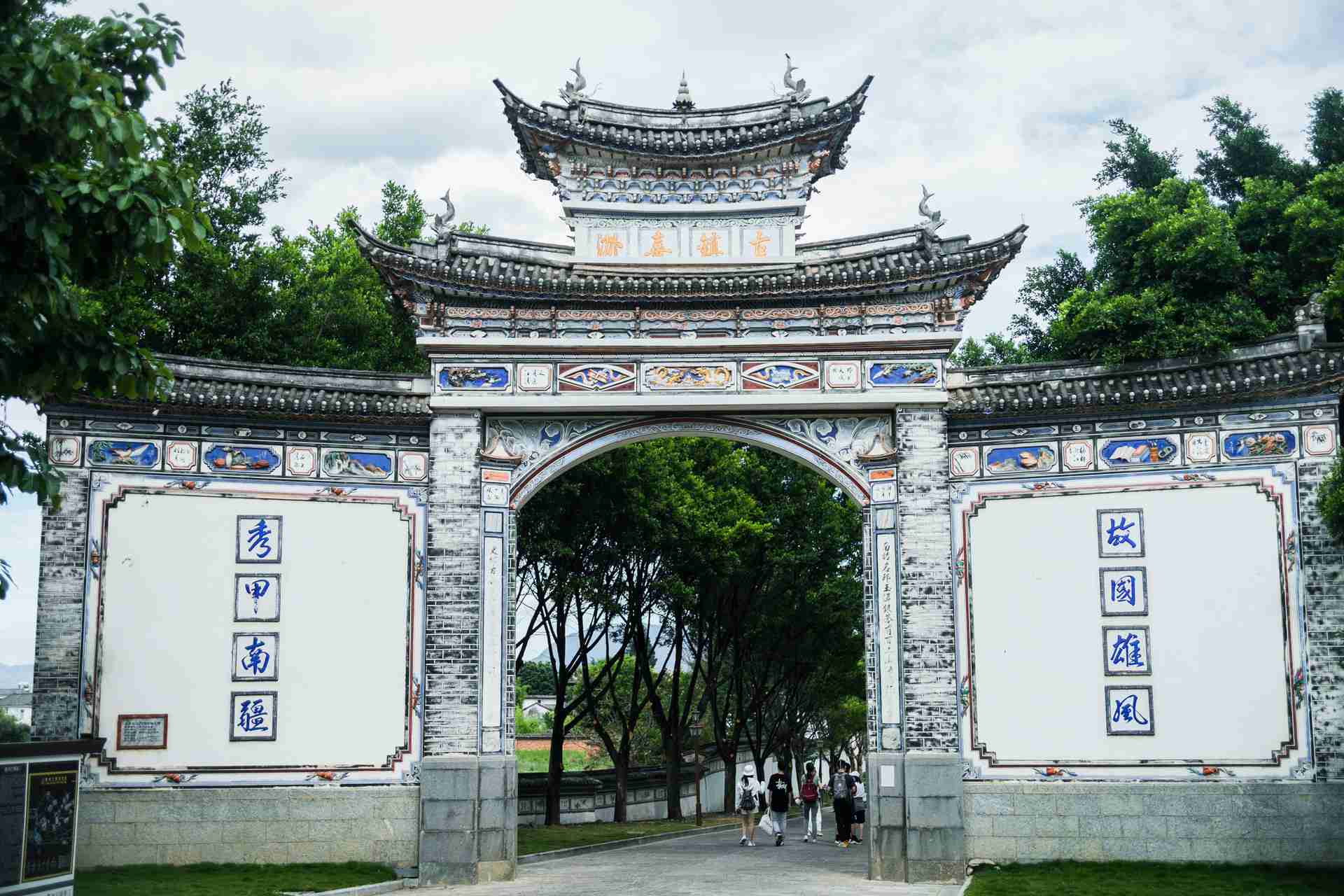
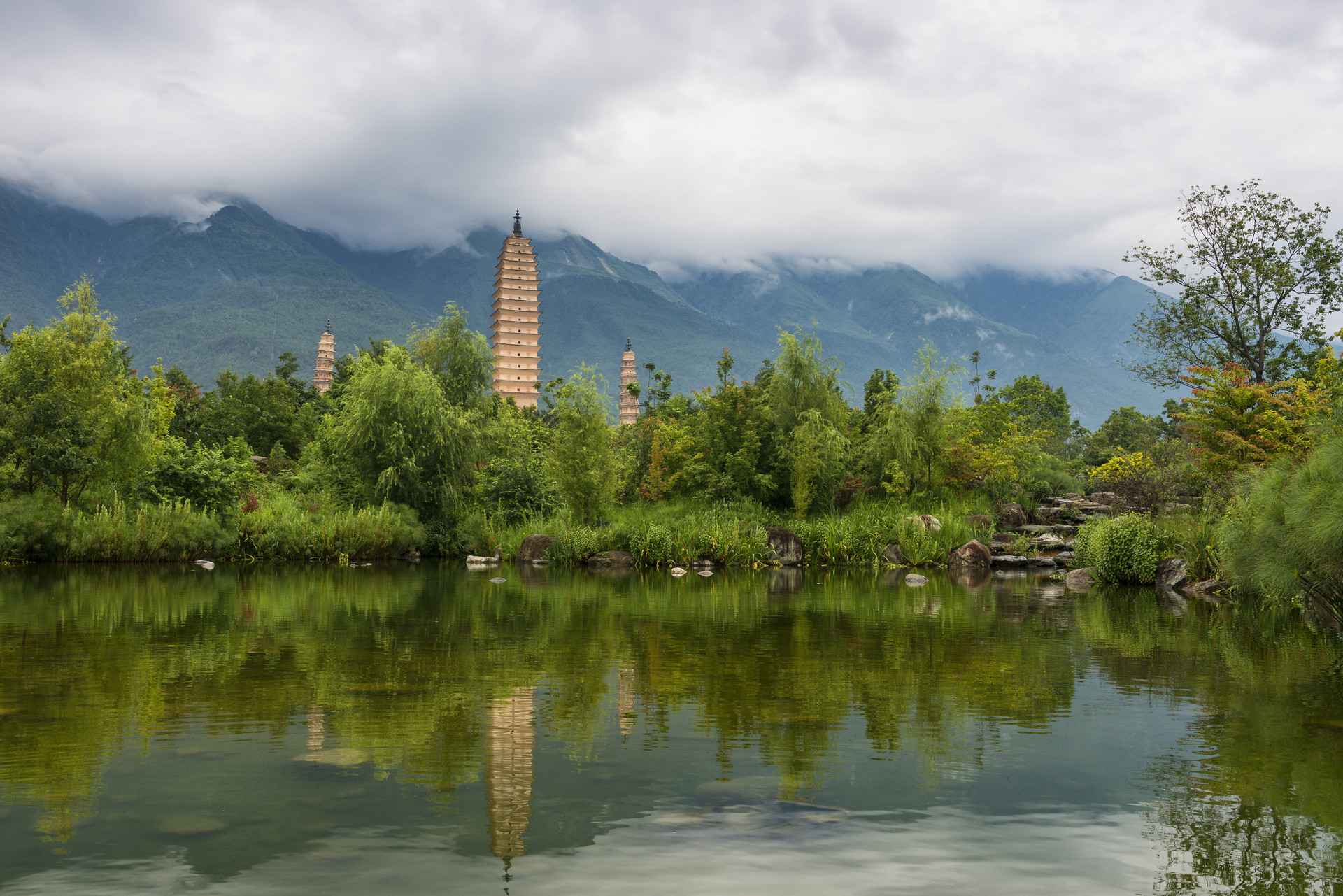
How to Get to Dali?
Different types of transportation in China can be chosen when traveling to Dali to learn Chinese.
Dali City is located in western Yunnan, approximately 160 miles northwest of the provincial capital of Kunming.
You can take a flight to arrive in Kunming first and then take the high-speed train from Kunming to Dali, which takes around 2 hours. The train ticket is around RMB 150 yuan.
The scenery along the way is stunningly beautiful. You cannot miss it if you are a mountain lover.
We offer train station pick-up and drop-off for free.
Places to Visit in Dali - Three Pagodas
Located in the Chongsheng Temple, the Three Pagodas in Dali have more than 1800 years of history. As its name implies, the Three Pagodas are three ancient independent pagodas forming a symmetrical triangle. It’s said that nine kings of the Dali Kingdom chose to be a Chongsheng monastery in the temple. The Three Pagodas are a symbol of the history of Dali and a record of the development of Buddhism in the area. When visiting the Three Pagodas, you can see the beauty of Erhai lake.
Places to Visit in Dali - Erhai Lake
After taking intensive one-on-one Chinese classes, you may want to put yourself into a natural environment to relax your body and mind. The Dali campus is 15 minutes’ walk to the Erhai lake.
Erhai Lake is the largest highland lake next to Dianchi (Kunming) and China’s seven biggest freshwater lakes. Its name 洱海 means ‘sea shaped like an ear’ in Chinese, implying that the lake is ear-shaped and as large as a sea. There are some small islands worth exploring along Erhai Lake. Learning Chinese in Dali offers an excellent opportunity to walk or jog along the lake bank early in the morning or evening.
Places to Visit in Dali - Xizhou Village
Dali Xizhou Ancient Town is located in the northern part of Dali City, Dali Bai Autonomous Prefecture, Yunnan Province. Hundreds of residential buildings built by the Bai minority with their architectural characteristics are standing here and waiting for you to visit. People often visit the houses of the Yan family and the Yang family. Wandering on the streets of Xizhou is like walking into a residential building museum. Along the streets, the tie-dye stands layout, the bougainvillea popping out of the wall, the fragrance of Xizhou pan-fried cake, the children chasing and playing on the street corner… all of these ordinary details integrated as a breath of history and culture rushes towards you when walking through the town.
Places to Visit in Dali - Shaxi Ancient Town
Dali Shaxi Ancient Town is located in Jianchuan County. It is the only surviving ancient bazaar on the ancient Yunnan-Tibet Ancient Tea-Horse Road, which is essential for transporting and trading medicinal tea materials, silk fabrics, and salt. In ancient times, trading by horse driving was an adventurous business. Away from the harsh snow-capped mountains, valleys, and rapids, Si Deng Street of Shaxi town was like a “paradise” to those hard-working caravans. With the improvement of the modern highway network and the development of transportation, Shaxi town gradually declined due to its distance from the main traffic lines. Although poverty and backwardness hindered the development of Shaxi, it allowed the ancient stage and shops with a history of about 600 years to be preserved and eventually became valuable cultural heritage.
Places to Visit in Dali - Dali Ancient Town
Do you like walking on the ancient town street, especially after several hours of Chinese language study at Keats School? Then you can go to visit the Dali Ancient Town.
The ancient town of Dali is located at the foot of the beautiful Cangshan Mountain. It was once the capital city of the ancient Nanzhao Kingdom and the Dali Kingdom. This is a beautiful place for people who want to enjoy a slow-paced life. With the sunshine glowing and the comfortable temperature, you can relax down here. It is enjoyable to stroll around the local shops in the ancient town and visit the ancient buildings. During the lunar month of March and April, there will be many festivals celebrated in Dali. The famous “March Street” is the most lively one among them.
Things To Do in Dali - Biking Around the Erhai Lake
Biking around Erhai Lake is the most relaxing way to appreciate its scenery. Erhai Lake is translated as 洱海 ěr hǎi in Chinese and is the seven largest freshwater lake in China, with an area of 265.5 square kilometers. Though it is a lake, local Bai group people prefer calling it the sea, for they have rare opportunities to know what a natural sea looks like, so they naturally take this giant lake as the sea. Erhai Lake is just a pool of clear blue water with tranquility and an essential part of the local ecological circle. By biking around the lake, you can experience both natural and cultural touring sites along the way.
Things To Do in Dali - Explore the Minority Bai Tie-Dyeing
You can try to make the Tie-dyeing handicraft here when learning Chinese in Dali, China.
Tie-dyeing is an ancient textile dyeing technique in China from the Eastern Han Dynasty. The Dali Bai Autonomous Prefecture retains this traditional technique, and the tie-dyeing industry of the Zhoucheng Bai group is the most famous. Tie-dyeing generally takes white cotton cloth or cotton-linen blended cloth as raw materials, and the dye is mainly blue indigo plant. The critical technology of Bai Tie-dyeing is the twisting technique and dyeing technique. The Bai minority group has a variety of tie-dye that boasts both aesthetic value and practical functions. The Bai Tie-dyeing is featured evenly distributed patterns and an auspicious theme.
Over 7300 Students Have Studied at Keats
Cuisine in Dali - Spicy and Sour Fish Soup 酸汤鱼
What to order in a Chinese restaurant when studying Mandarin in Dali?
Shuanglang is the birthplace of the famous Dali Spicy and Sour Fish Soup. There have been human activities since ancient times. They inhabited Erhai Lake and preyed on fish in Erhai Lake. So fish meat became the primary source of their daily foods. After thousands of years of evolution and accumulation, fishermen add papaya, chili, tofu, yam, and other ingredients when cooking fresh fish, gradually forming this traditional Dali delicacy. As the name indicates, this famous Spicy and Sour Fish soup tastes both spicy and sour with a refreshing flavor.
Cuisine in Dali – Weizhou Sticky rice noodles 巍州扒肉饵丝
People in southern China like to eat rice, and Dali is not an exception. Therefore, the staple food of Dali is mainly rice or rice products, such as sticky rice noodles and sticky rice cake. One of the most famous local dishes is the Weizhou sticky rice noodles. This dish uses fresh, top-quality pork meat. The pork meat will be slow-cooked for a long time until the meat gets soft and fall apart tenderly. This dish is rich and delicious but not greasy at all.
Cuisine in Dali – Milk Cheese Fan 乳扇
The milk cheese fan is a sort of cheese food popular in the northwestern Yunnan province. As the name indicates, it is made of milk. The milk cheese fan is cream-colored and shaped like a folding fan, so the locals named it the Milk Cheese Fan. You can eat it raw or cook it by frying or roasting it. It can also be cooked with Yunnan ham as a formal dish. Milk Cheese Fan can also be chopped up and added to the boiled tea drink to serve as the sweet tea, the second course of the famous Dali Three Courses Tea.
FAQ
How to Get to Dali?
Dali City is located in western Yunnan, approximately 160 miles northwest of the provincial capital of Kunming.
You can take a flight to arrive in Kunming first and then take the high-speed train from Kunming to Dali, which takes around 2 hours. The train ticket is around RMB 150 yuan.
The scenery along the way is stunningly beautiful. You cannot miss it if you are a mountain lover.
We offer train station pick-up and drop-off for free.
What's the year around temperature in Dali?
Dali, located in Yunnan province, China, enjoys a mild climate with a year-round average temperature of around 15°C (59°F). It has a notable characteristic of not being too hot in summer, usually around 22°C (72°F), and not too cold in winter, typically around 8°C (46°F). However, temperatures can vary greatly between day and night. It’s always recommended to check the latest weather forecast before planning your visit.
What does the tuition fee include?
The tuition fee includes:
- 4/6 hours of one-on-one Chinese lessons per day Monday to Friday
- Accommodation (A clean and safe single/double room with private bathroom)
- Program Certificate
We also offer a list of free services for studying in Dali:
- Airport/train station pick-up and drop-off
- Internet access use without limit
- Saturday excursions
- Laundry
- A tour of the surroundings (bank, supermarket, post office etc.)
- Medicine for minor illnesses
- Advisors available to offer help
- 24/7 support
- Access to The Chairman’s Bao online learning platform
- Visa application assistance
- Room cleaning every day
Where to eat in Dali?
There are two food streets next to where you live. You will have tons of choices for food.
The cost of eating in Dali can vary greatly depending on where and what you choose to eat. Here are some general estimates:
- Street food: You can find local snacks like baba (flatbread) or rice noodles for as low as 5-10 CNY.
- Local restaurants: A meal at a local restaurant in Dali might cost around 30-60 CNY per person.
- Mid-range restaurants: If you choose to dine at a mid-range restaurant, you might spend around 70-150 CNY per person.
- High-end restaurants: For a more luxurious dining experience, expect to pay upwards of 200 CNY per person.
LEARN CHINESE IN CHINA WITH KEATS
Rients's Story at Keats
Kunming, My Second Hometown
OVER 7300+ STUDENTS
HAVE STUDIED AT KEATS
It is very comfortable studying at Keats. The teachers are very friendly. I welcome you to come to study Chinese in China at Keats.
My school is amazing. I recommend Keats School because it is a more convenient way to learn Chinese in Kunming.
Before I came to Keats School, I had no confidence in my Chinese proficiency. I did not have the confidence to speak Mandarin Chinese and chat with Chinese people. However, after 4 months of study at Keats, I become more and more confident in speaking Chinese now. Studying Chinese in China at Keats School has been the best decision I have ever made. There are many games in the class, and my teacher’s teaching methods are also very interesting. My experience at Keats School has changed my view of China and Chinese people.
I’ve had a really great time here. I’ve studied a lot with my teacher who was fantastic. Keats School tried very hard to match its students with really good teachers that their personality works very well together. I really enjoy studying Chinese at Keats and I will definitely come back.
The best part of the school is the patience the instructors had and the time to focus on the fundamentals like pronunciation. I think it is very easy to skip over those and go to vocabulary. But by learning the pronunciation, I feel like it helped me gain a better understanding of the language.
I can’t tell you how much I liked it. The thing I liked about the teachers and the teaching method is that there is so much flexibility. The other thing I liked about the teaching is the combination of classic textbook learning and going outside. I loved it! I like getting to know other students. Everybody shared the same goal and that’s making their Chinese better. Kunming is a big city, but it is very safe to live here. Another thing I liked about Keats is the idea that people here help you. I can’t recommend it enough. I think it was a valuable experience. Looking forward to coming back!
I have 2 teachers, and I do 4 hours a day. So I have got Dong Laoshi and Jin Laoshi. Both of them are very good. They made the experience very nice to me. They are willing to help you whenever, so if you ever have a question here, the teachers are always there to help you whether it is visas, whether it is getting around the city. Everyone wants to talk to you.
It is very convenient to come to Kunming from Thailand. I really like my Chinese class and my Chinese improved a lot in a few months. There are many benefits of learning Chinese. The best thing I like about Keats is that it is in Kunming, a city with eternal spring. There is so much to see in Kunming and you will love this city after you come.